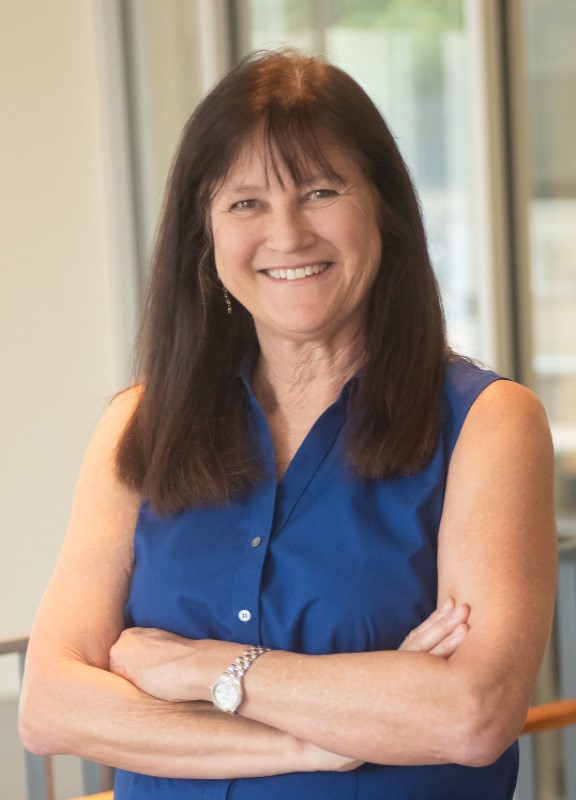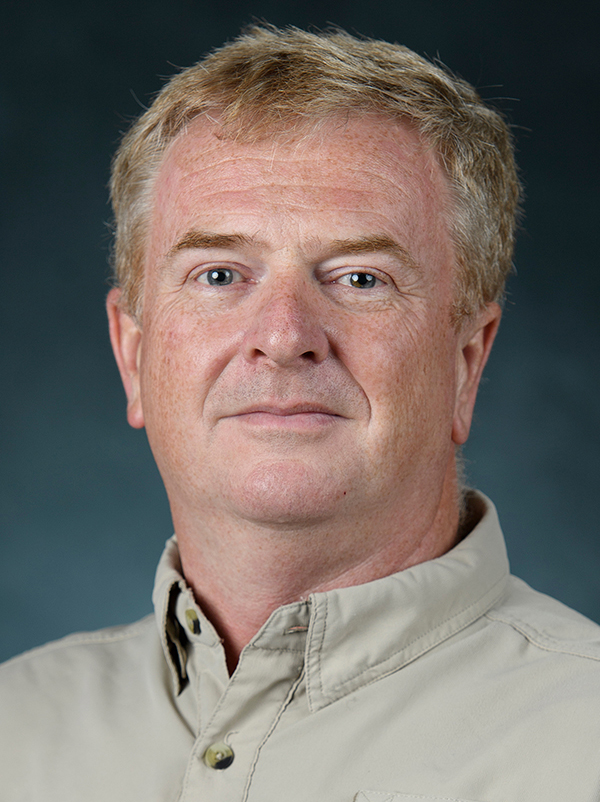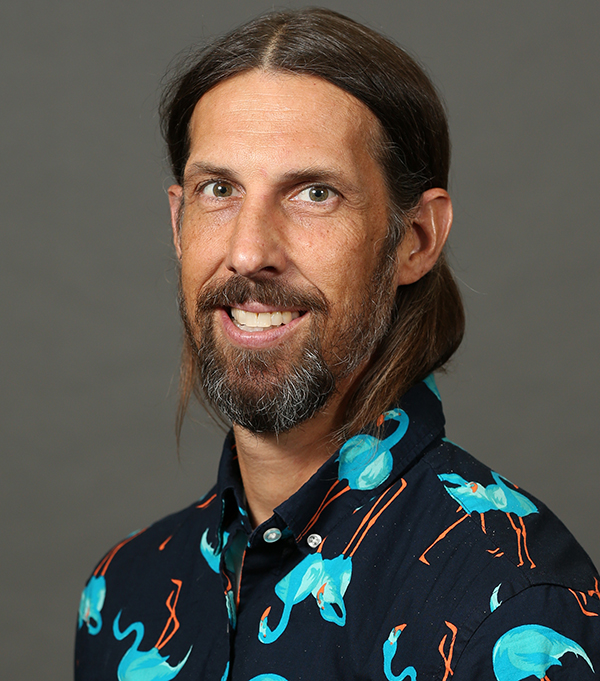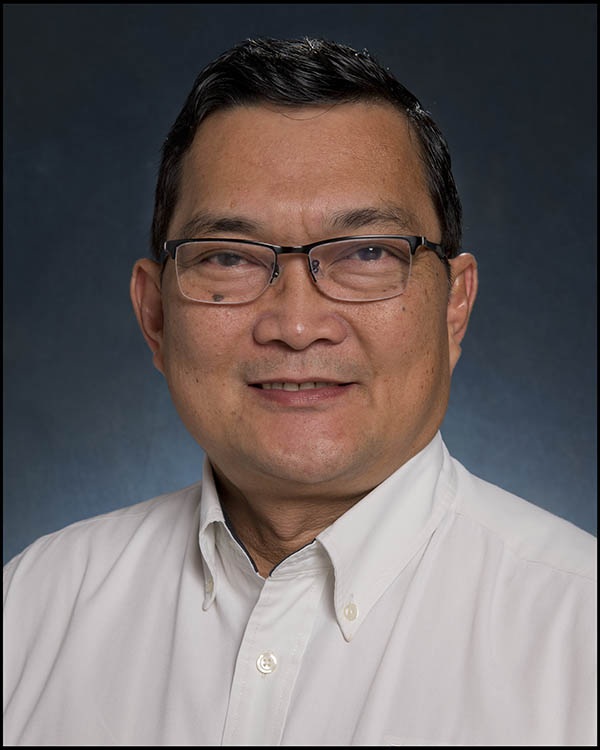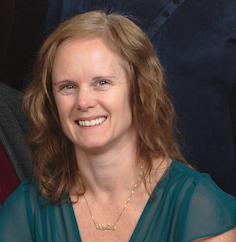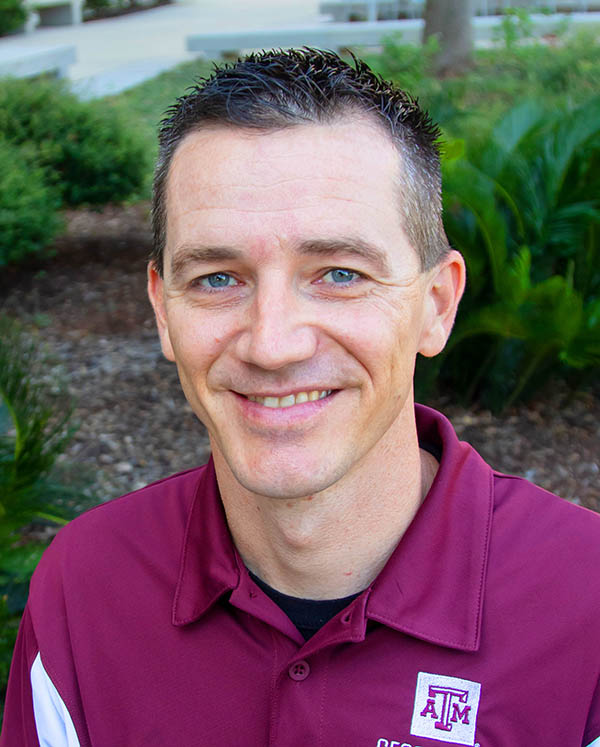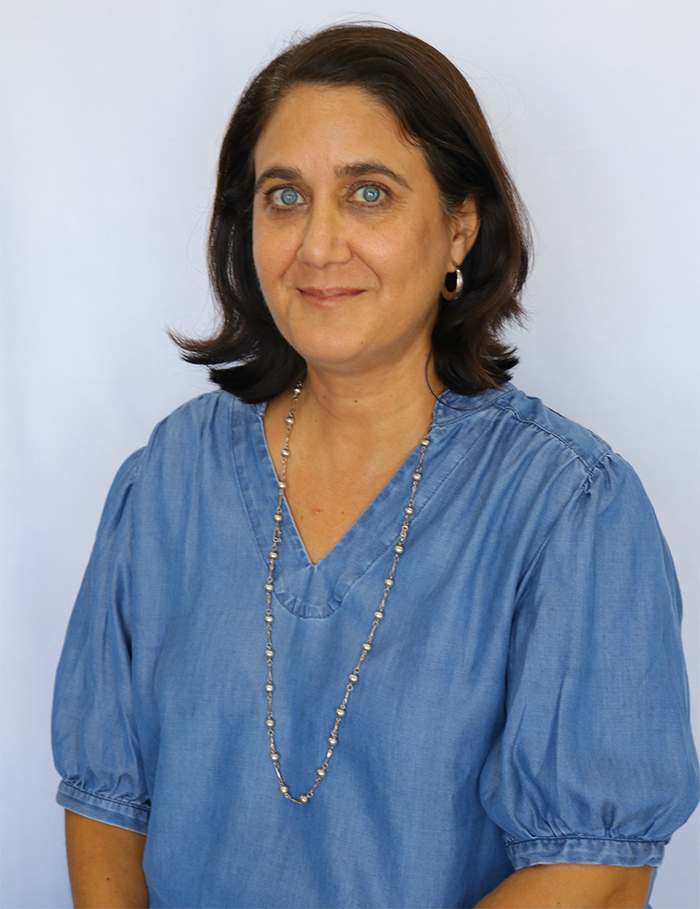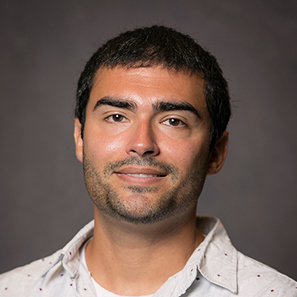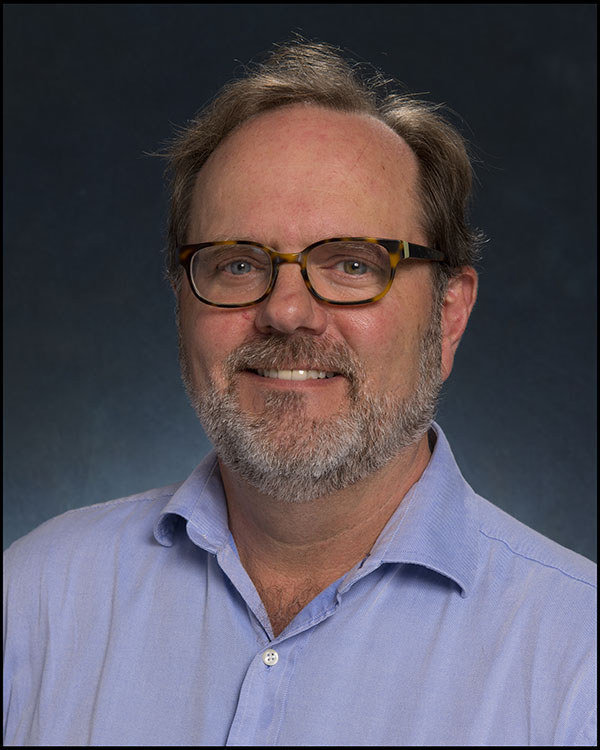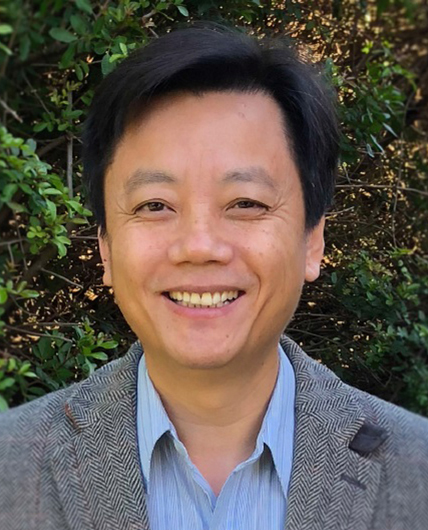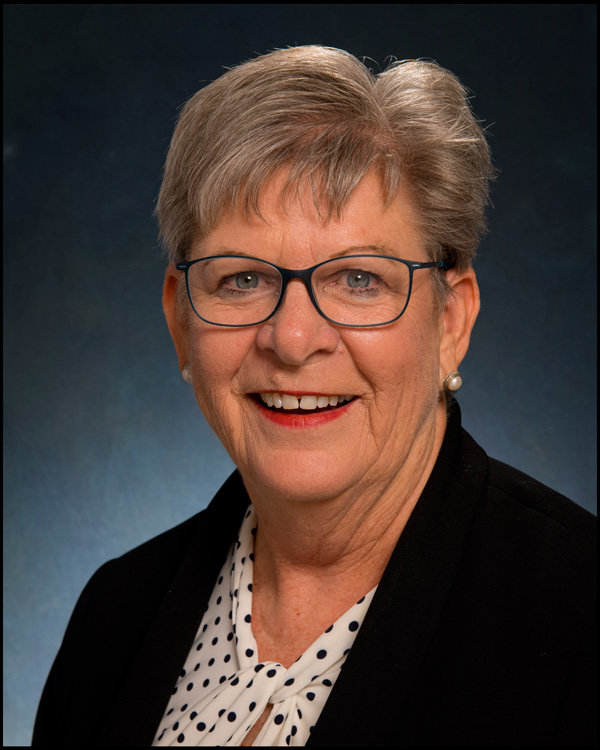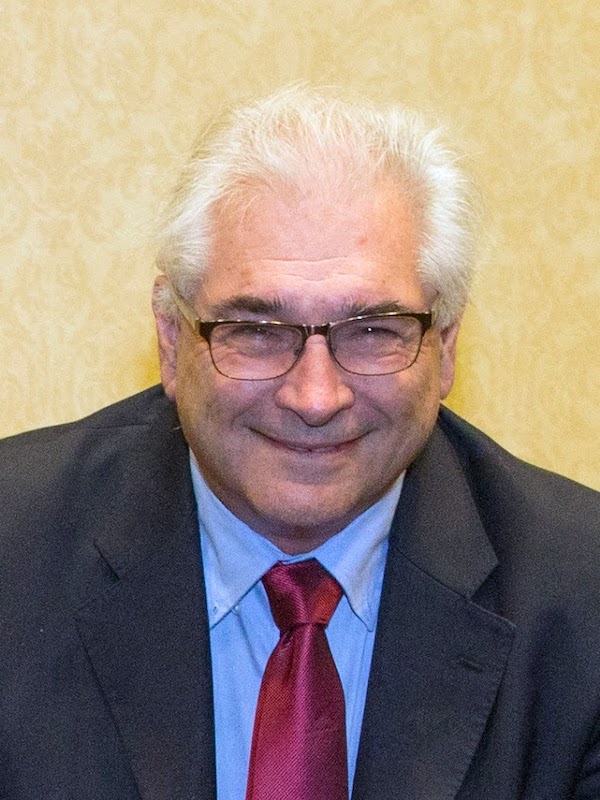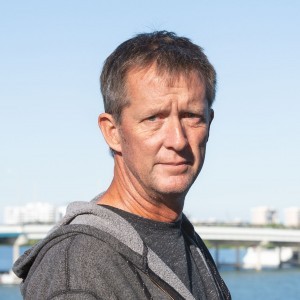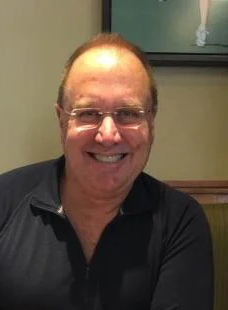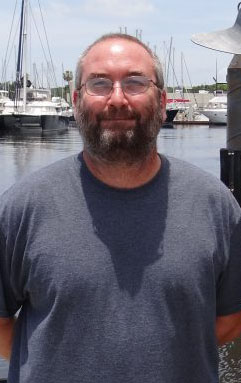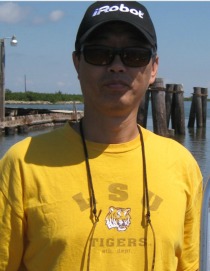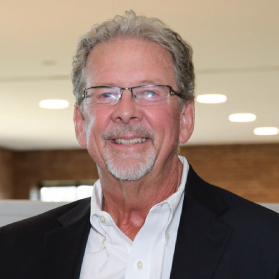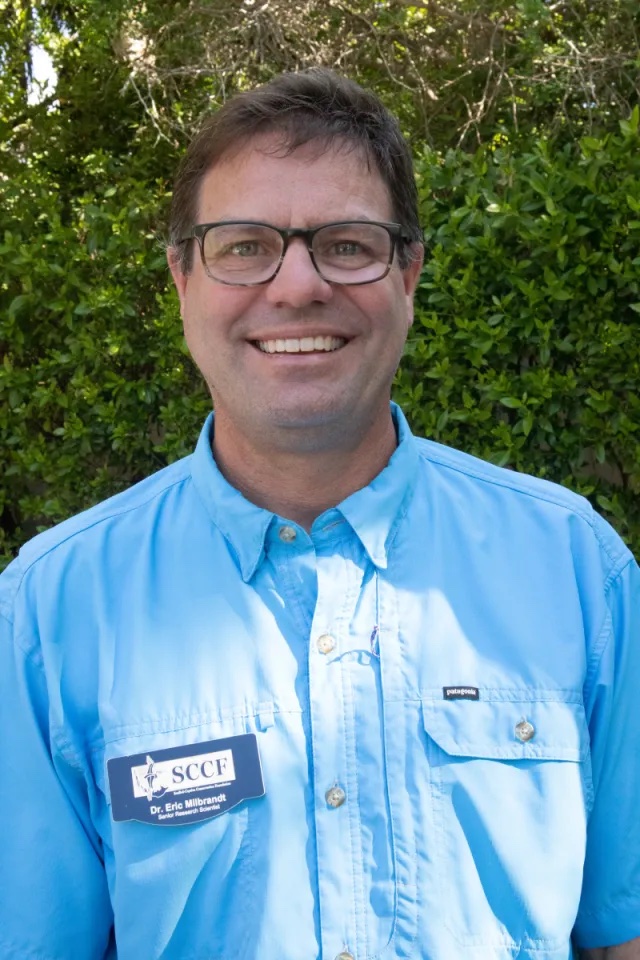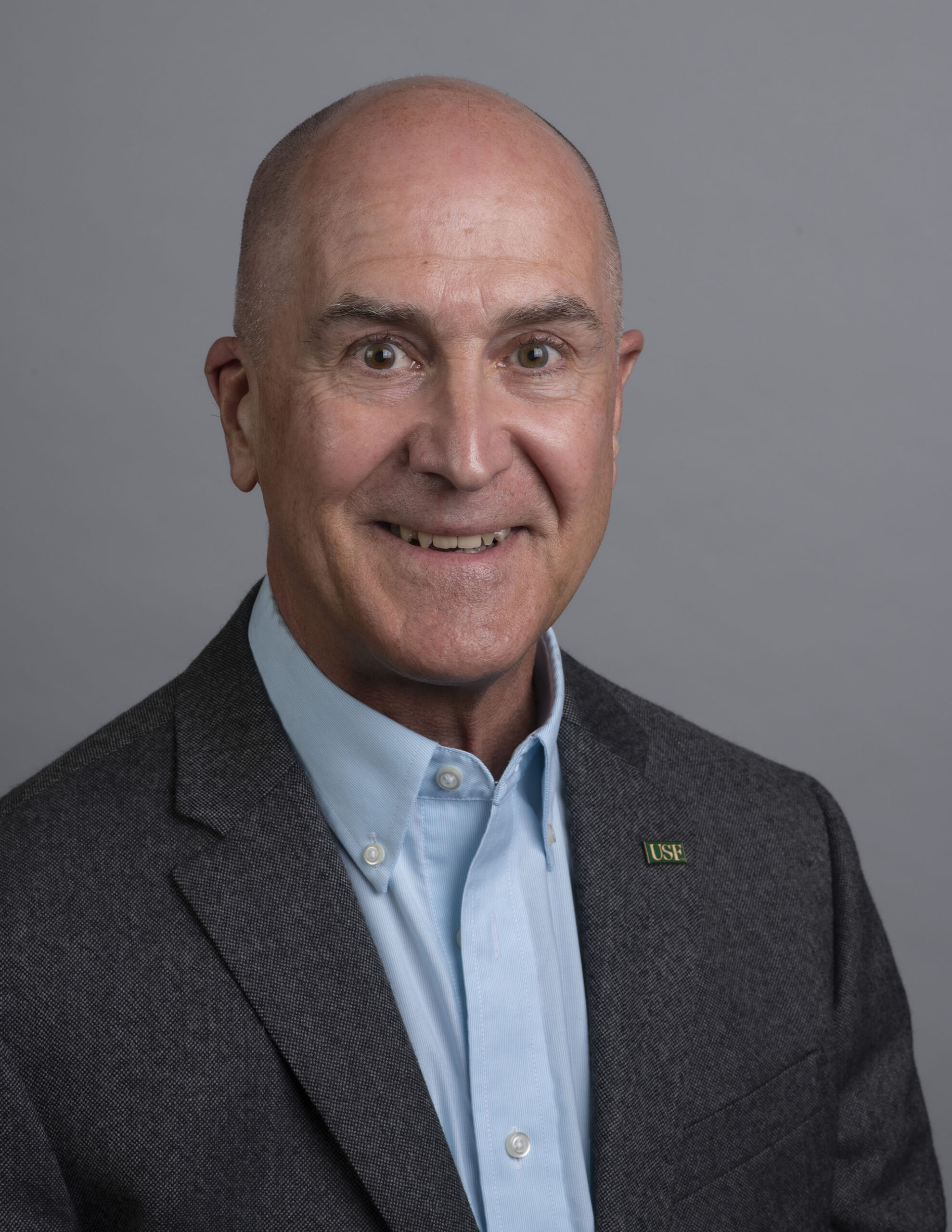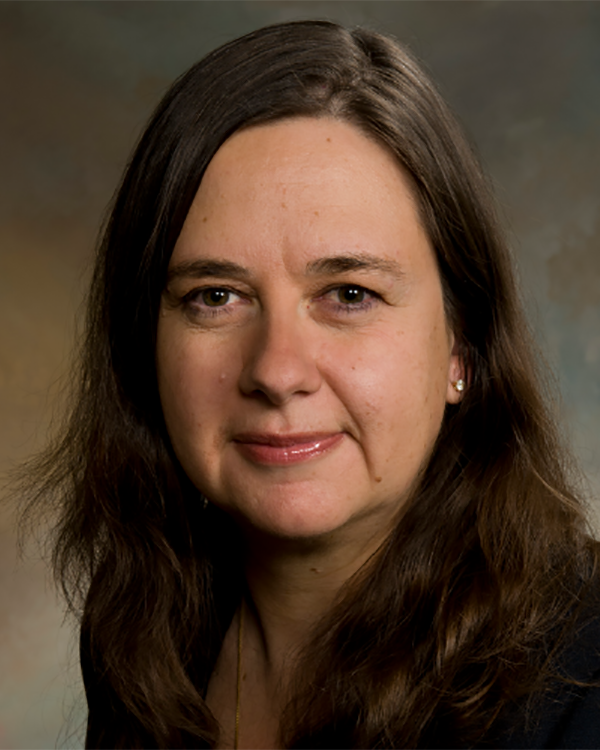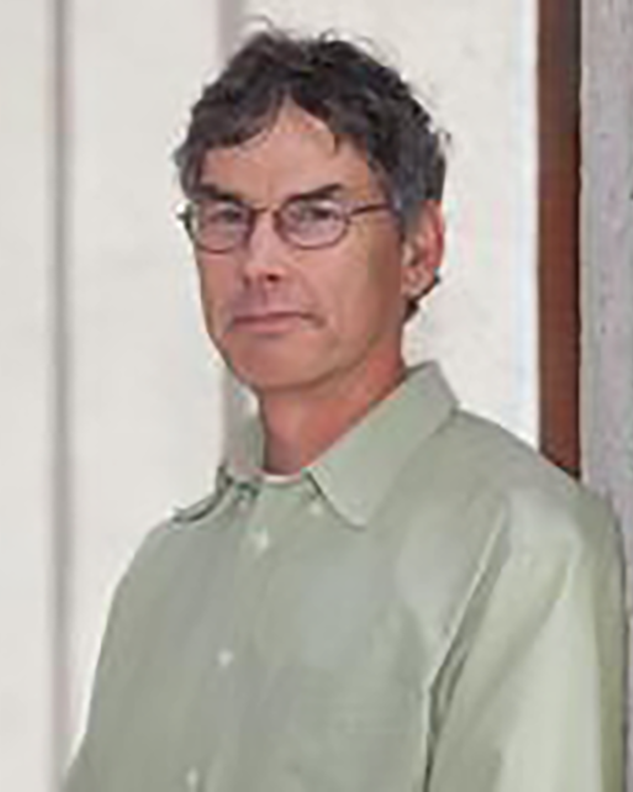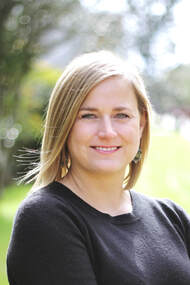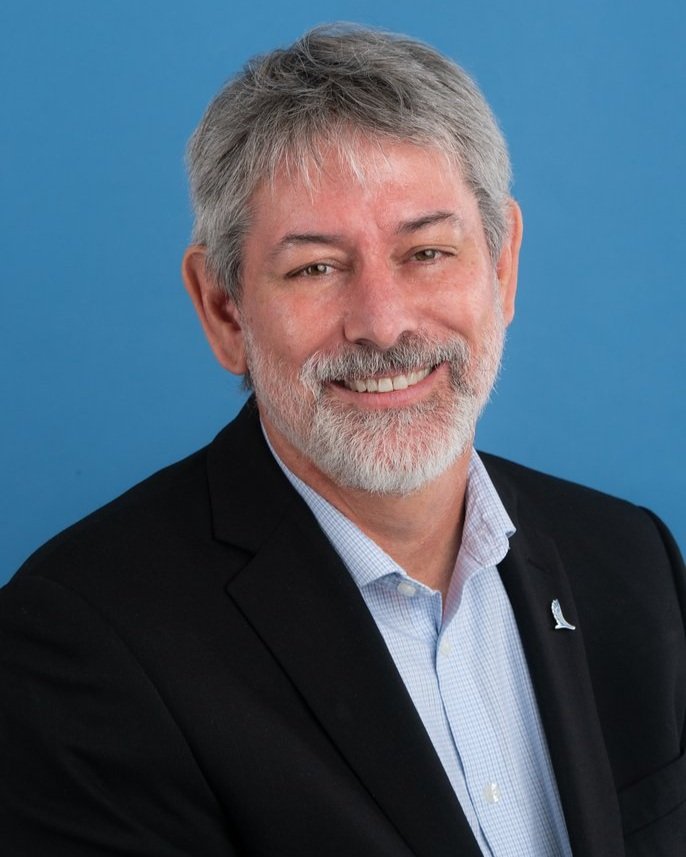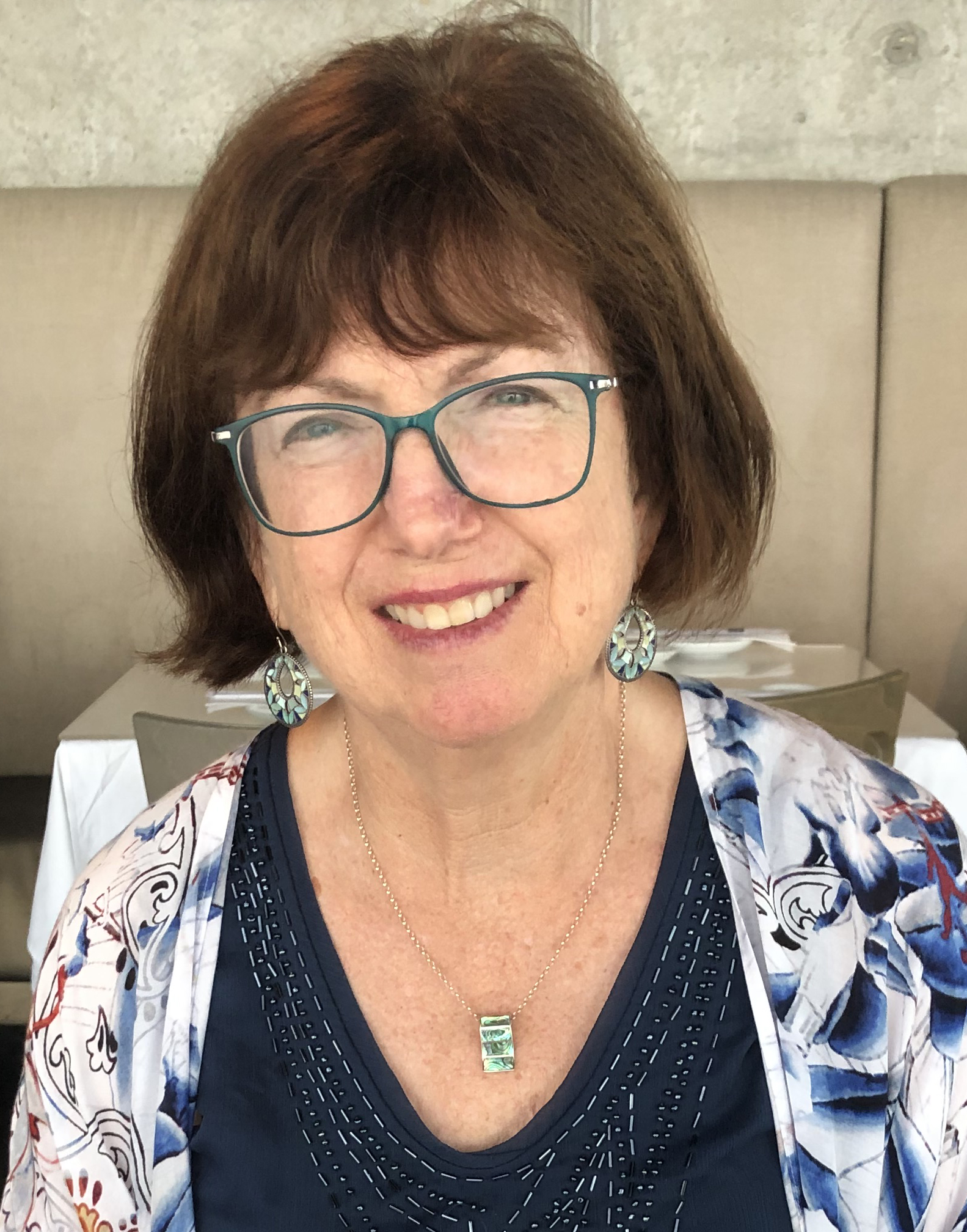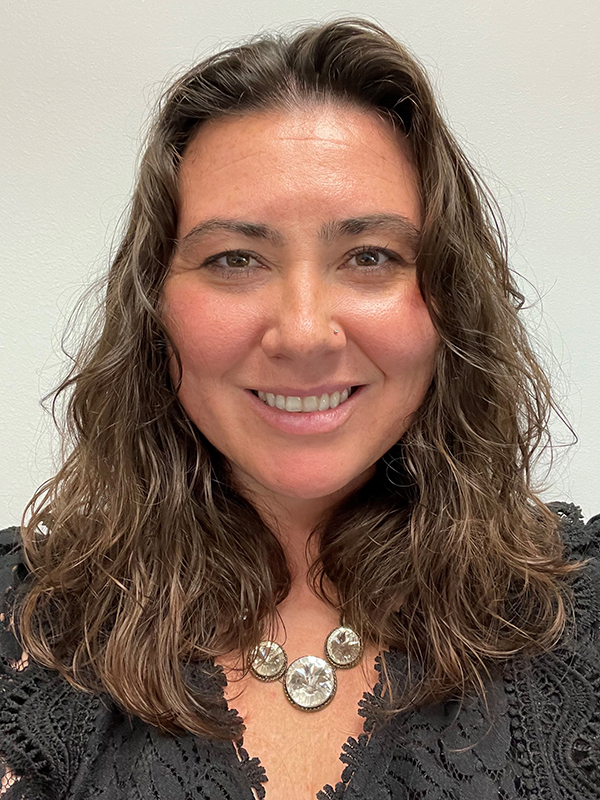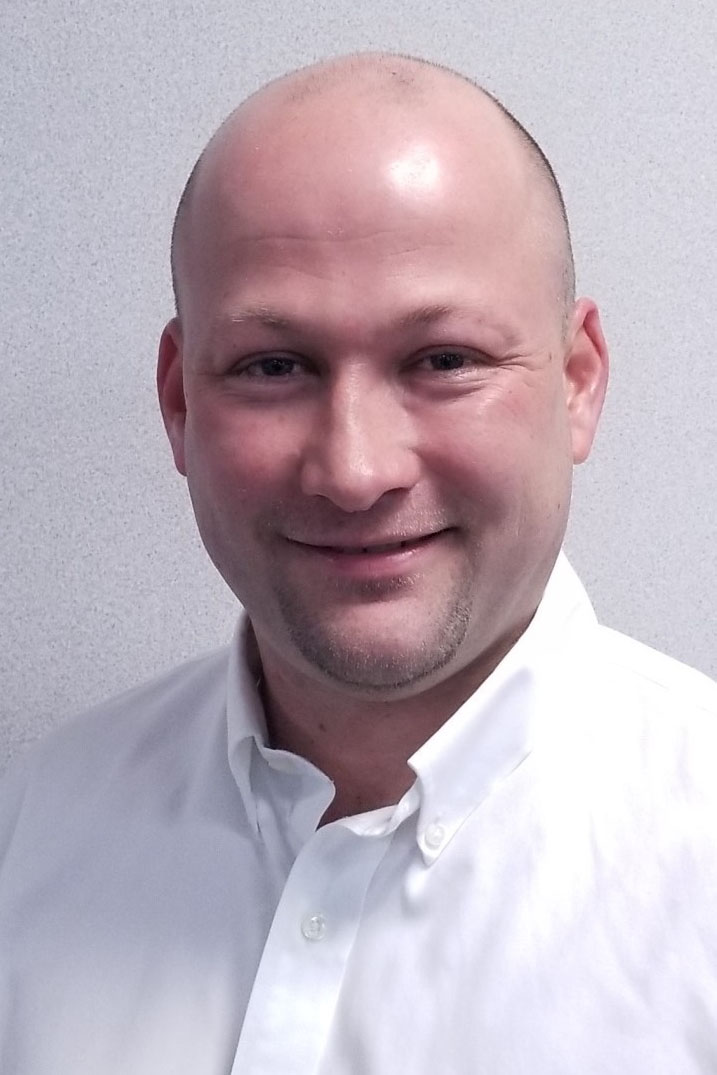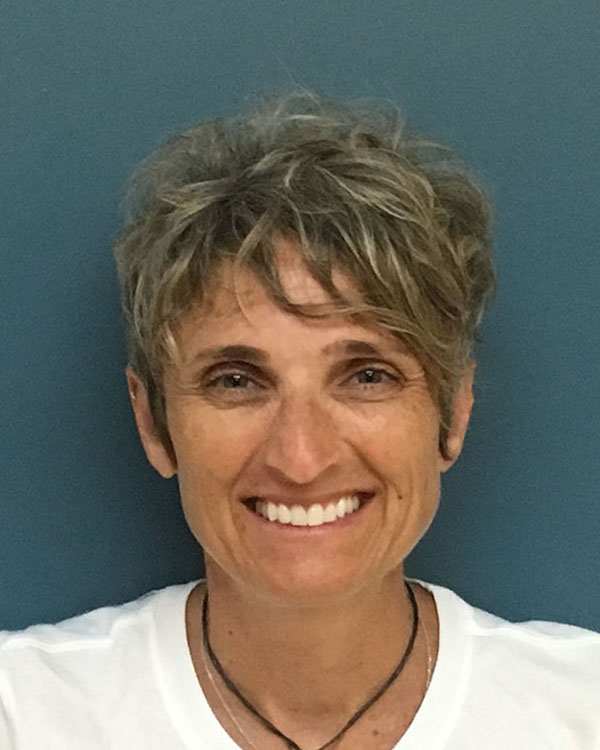GCOOS is primarily funded by the U.S. Integrated Ocean Observing System (IOOS) through a Cooperative Institute in five-year cycles. Our most recent proposal for funding covers 2021-2026 under the project title “Continuing the Development of the Gulf of Mexico Coastal Ocean Observing System.”
In turn, GCOOS develops partnerships with academic, NGOs and industry to support ocean observations and platforms in the Gulf. Sub-award proposals are selected competitively based on system-wide needs and awarded to Principal Investigators.
GCOOS has also received additional funding through other federal supplements, including those related to hurricane intensity forecasting and replacement of storm-damaged ocean-observing infrastructure.
This page showcases current GCOOS Principal Investigators.
Dr. Matthew Bethel is the Associate Executive Director of Research for Louisiana Sea Grant at Louisiana State University. He is responsible for managing Louisiana Sea Grant’s research and student fellowship programs. He also leads a research program based on his 20+ years of experience in the application of geospatial technology for trans-disciplinary studies that addresses data and information needs for combined social and ecological decision support systems. Matt has focused these efforts working with coastal communities to enhance hazard mitigation and climate adaptation planning processes through collaborative partnerships that utilize both science-based information and the traditional ecological knowledge (TEK) of local partners in a complementary way to inform local, state, and regional-level decision-making.
Project Title
- “Supporting Coastal Resilience with the Pointe-au-Chien Indian Tribe through inundation sensor technology and traditional ecological knowledge”
Contact
Dr. Matthew Bethel is the Associate Executive Director of Research for Louisiana Sea Grant at Louisiana State University. He is responsible for managing Louisiana Sea Grant’s research and student fellowship programs. He also leads a research program based on his 20+ years of experience in the application of geospatial technology for trans-disciplinary studies that addresses data and information needs for combined social and ecological decision support systems. Matt has focused these efforts working with coastal communities to enhance hazard mitigation and climate adaptation planning processes through collaborative partnerships that utilize both science-based information and the traditional ecological knowledge (TEK) of local partners in a complementary way to inform local, state, and regional-level decision-making.
Project Title
- “Supporting Coastal Resilience with the Pointe-au-Chien Indian Tribe through inundation sensor technology and traditional ecological knowledge”
Contact
Dr. Lisa Campbell received her M.S. and Ph.D. from SUNY Stony Brook (now Stony Brook University) and was a Research Scientist at the University of Hawaii before joining the faculty at Texas A&M University in 1996. Currently, she is a Regents Professor and recipient of the William R. Bryant Endowed Chair in the Department of Oceanography. She has had a joint appointment in the Department of Biology since 2001. Her research focuses on the diversity and population dynamics of marine phytoplankton. Although she has worked in all oceans, her current research centers on harmful algal blooms in the Gulf of Mexico. Dr. Campbell pioneered the use of the Imaging FlowCytobot (IFCB) as a monitoring tool for harmful algae. The IFCB combines flow cytometry and video technology to capture images of individual algal cells in real time. Using this autonomous system, she has established a long-term high temporal resolution phytoplankton time series and has provided successful early warning for potential harmful algal blooms since 2007. Dr. Campbell has been recognized at TAMU for a Distinguished Achievement in Teaching (2015), a Women’s Faculty Network Outstanding Mentoring Award (2014), Dean’s Distinguished Achievement Award for Faculty Research (2009) and is a Sustaining Fellow of the Association for the Sciences of Limnology & Oceanography (ASLO). She served as Secretary on the Board of Directors ASLO from 2009-2018 and currently serves as an Associate Editor for the Journal of Plankton Research. She has published over 100 peer-reviewed publications.
Project Title
- “Continuing the TOAST network of high-resolution time series for observation of long term trends and prediction of harmful algal blooms in Texas”
Contact
Asset Link
Dr. Lisa Campbell received her M.S. and Ph.D. from SUNY Stony Brook (now Stony Brook University) and was a Research Scientist at the University of Hawaii before joining the faculty at Texas A&M University in 1996. Currently, she is a Regents Professor and recipient of the William R. Bryant Endowed Chair in the Department of Oceanography. She has had a joint appointment in the Department of Biology since 2001. Her research focuses on the diversity and population dynamics of marine phytoplankton. Although she has worked in all oceans, her current research centers on harmful algal blooms in the Gulf of Mexico. Dr. Campbell pioneered the use of the Imaging FlowCytobot (IFCB) as a monitoring tool for harmful algae. The IFCB combines flow cytometry and video technology to capture images of individual algal cells in real time. Using this autonomous system, she has established a long-term high temporal resolution phytoplankton time series and has provided successful early warning for potential harmful algal blooms since 2007. Dr. Campbell has been recognized at TAMU for a Distinguished Achievement in Teaching (2015), a Women’s Faculty Network Outstanding Mentoring Award (2014), Dean’s Distinguished Achievement Award for Faculty Research (2009) and is a Sustaining Fellow of the Association for the Sciences of Limnology & Oceanography (ASLO). She served as Secretary on the Board of Directors ASLO from 2009-2018 and currently serves as an Associate Editor for the Journal of Plankton Research. She has published over 100 peer-reviewed publications.
Project Title
- “Continuing the TOAST network of high-resolution time series for observation of long term trends and prediction of harmful algal blooms in Texas”
Contact
Asset Link
Dr. Zach Cobell is a senior researcher with The Water Institute’s Applied Technology division, focused on the translation of applied research into digital solutions to support the Institute’s vision to reduce vulnerabilities to people, communities, environments and economies. As the lead developer of the FloodID system, Cobell’s professional focus is on the development of scalable and interoperable tools to support emergency managers in preparation and response to flood events.
Cobell graduated with a degree in civil engineering and environmental engineering from the University of Notre Dame in 2010. During his time at Notre Dame, he traveled to New Orleans in the wake of Hurricane Katrina and toured areas impacted by the storm. From that experience, he developed an interest in the numerical modeling of hurricane events and began conducting research in the university’s Computational Hydraulics Lab under Dr. Joannes Westerink.
Since graduating, Cobell has helped lead numerical modeling studies throughout the United States, including the storm surge and wave analysis for the 2012, 2017, and 2023 Louisiana Coastal Master Plans. He has also worked extensively on the optimization of numerical models in high performance computing environments. Additionally, Cobell is the maintainer of the ADCIRC hydrodynamic model, which is used by state and federal government entities within the United States and around the world to simulate coastal and riverine hydrodynamic processes efficiently at scale.
Project Title
- “Evaluation of Operational Modeling Frameworks and Model Coupling for Water Level Forecasting”
Contact
Dr. Zach Cobell is a senior researcher with The Water Institute’s Applied Technology division, focused on the translation of applied research into digital solutions to support the Institute’s vision to reduce vulnerabilities to people, communities, environments and economies. As the lead developer of the FloodID system, Cobell’s professional focus is on the development of scalable and interoperable tools to support emergency managers in preparation and response to flood events.
Cobell graduated with a degree in civil engineering and environmental engineering from the University of Notre Dame in 2010. During his time at Notre Dame, he traveled to New Orleans in the wake of Hurricane Katrina and toured areas impacted by the storm. From that experience, he developed an interest in the numerical modeling of hurricane events and began conducting research in the university’s Computational Hydraulics Lab under Dr. Joannes Westerink.
Since graduating, Cobell has helped lead numerical modeling studies throughout the United States, including the storm surge and wave analysis for the 2012, 2017, and 2023 Louisiana Coastal Master Plans. He has also worked extensively on the optimization of numerical models in high performance computing environments. Additionally, Cobell is the maintainer of the ADCIRC hydrodynamic model, which is used by state and federal government entities within the United States and around the world to simulate coastal and riverine hydrodynamic processes efficiently at scale.
Project Title
- “Evaluation of Operational Modeling Frameworks and Model Coupling for Water Level Forecasting”
Contact
Pat David is the Data Architect for Alabama’s Real-Time Coastal Observing System (ARCOS). Since 2003, Dauphin Island Sea Lab (DISL) has been collecting real-time environmental monitoring data in and around Mobile Bay. The meteorological and hydrographic data provided by DISL is very important for understanding the complex ecosystems of Mobile Bay. Our overall goals and objectives are to continue to make this high-quality data available for decision makers, researchers, and the general public, not only to assist our users in forming effective strategies when faced with natural and man-made disasters, but also to enhance the economy, and to protect the environment.
Project Title
- “Gulf of America HAB Pilot Testbed Project ; Coastal monitoring from Alabama’s Real-Time Coastal Observing System (ARCOS)”
Contact
Asset Link
Pat David is the Data Architect for Alabama’s Real-Time Coastal Observing System (ARCOS). Since 2003, Dauphin Island Sea Lab (DISL) has been collecting real-time environmental monitoring data in and around Mobile Bay. The meteorological and hydrographic data provided by DISL is very important for understanding the complex ecosystems of Mobile Bay. Our overall goals and objectives are to continue to make this high-quality data available for decision makers, researchers, and the general public, not only to assist our users in forming effective strategies when faced with natural and man-made disasters, but also to enhance the economy, and to protect the environment.
Project Title
- “Gulf of America HAB Pilot Testbed Project ; Coastal monitoring from Alabama’s Real-Time Coastal Observing System (ARCOS)”
Contact
Asset Link
Dr. Arne-R. Diercks received his Ph.D. in Geological Oceanography from the University of Southern Mississippi, a Master of Science from the University of Hamburg, FRG. He joined USM in 1990, and left the University to work at oceanographic commercial companies for 10 years. During those years he worked as science liaison between NDBC, SCRIPPS, CODAR Ocean Sensors and the Naval Post Graduate School to help establish the National HF Radar Network. He rejoined USM as autonomous uncrewed vehicle manager for the National Institute of Undersea Science and Technology in 2007. Since 2014 he has been a part of the USM research faculty.
Supplemental Awards
- Modernization and Recapitalization of the Gulf of Mexico Coastal Ocean Observing System
Contact
Dr. Arne-R. Diercks received his Ph.D. in Geological Oceanography from the University of Southern Mississippi, a Master of Science from the University of Hamburg, FRG. He joined USM in 1990, and left the University to work at oceanographic commercial companies for 10 years. During those years he worked as science liaison between NDBC, SCRIPPS, CODAR Ocean Sensors and the Naval Post Graduate School to help establish the National HF Radar Network. He rejoined USM as autonomous uncrewed vehicle manager for the National Institute of Undersea Science and Technology in 2007. Since 2014 he has been a part of the USM research faculty.
Supplemental Awards
- Modernization and Recapitalization of the Gulf of Mexico Coastal Ocean Observing System
Contact
Dr. Steven F. DiMarco is a Professor in the Department of Oceanography and the Department of Ocean Engineering and is Director of the Geochemical and Environmental Research Group at Texas A&M University. He was elected Fellow of the Marine Technology Society (MTS) in 2020. His research specializes in the interactions of physical and biogeochemical processes of the coastal and deep ocean. He has served as Chief Scientist on 37 oceanographic cruises. He has served as a Plank Owner Member (2010-2017) of the National Science Foundation University-National Oceanographic Laboratory System (UNOLS) Ocean Observing Science Committee (OOSC); he also served on the National Academy of Science, Engineering, and Medicine Committee to Advance the Understanding of the Gulf of Mexico Loop Current (2017). He currently is Principal Investigator the Texas Automated Buoy System (TABS), a real-time ocean observing network in the western Gulf of Mexico, which includes moored, shipboard, hi-frequency radar, and autonomous vehicles (principally funded by the Texas General Land Office – Oil Spill Division). From 2003-2018, he led a large group of Principal investigators from seven institutions that investigated the processes that lead to and sustain the hypoxic region of the northern Gulf of Mexico (http://mchatlas.tamu.edu; NOAA-funded). From 2007-2014, he led a research group investigating the circulation characteristics of the northwestern Indian Ocean and Sea of Oman (funded through the Sultanate of Oman). He was Co-PI and Executive Committee Member of the Gulf Integrated Spill Research Consortium funded by the Gulf of Mexico Research Initiative. DiMarco received his PhD from the University of Texas at Dallas (Physics, 1991).
Project Title
- “Maintenance and Operation of the Texas High Frequency Radar Network ; System Upgrades to the Texas Automated Buoy System ; Gulf Hurricane Glider Operations in Support of Tropical Cyclone Intensification Forecasts”
Contact
Dr. Steven F. DiMarco is a Professor in the Department of Oceanography and the Department of Ocean Engineering and is Director of the Geochemical and Environmental Research Group at Texas A&M University. He was elected Fellow of the Marine Technology Society (MTS) in 2020. His research specializes in the interactions of physical and biogeochemical processes of the coastal and deep ocean. He has served as Chief Scientist on 37 oceanographic cruises. He has served as a Plank Owner Member (2010-2017) of the National Science Foundation University-National Oceanographic Laboratory System (UNOLS) Ocean Observing Science Committee (OOSC); he also served on the National Academy of Science, Engineering, and Medicine Committee to Advance the Understanding of the Gulf of Mexico Loop Current (2017). He currently is Principal Investigator the Texas Automated Buoy System (TABS), a real-time ocean observing network in the western Gulf of Mexico, which includes moored, shipboard, hi-frequency radar, and autonomous vehicles (principally funded by the Texas General Land Office – Oil Spill Division). From 2003-2018, he led a large group of Principal investigators from seven institutions that investigated the processes that lead to and sustain the hypoxic region of the northern Gulf of Mexico (http://mchatlas.tamu.edu; NOAA-funded). From 2007-2014, he led a research group investigating the circulation characteristics of the northwestern Indian Ocean and Sea of Oman (funded through the Sultanate of Oman). He was Co-PI and Executive Committee Member of the Gulf Integrated Spill Research Consortium funded by the Gulf of Mexico Research Initiative. DiMarco received his PhD from the University of Texas at Dallas (Physics, 1991).
Project Title
- “Maintenance and Operation of the Texas High Frequency Radar Network ; System Upgrades to the Texas Automated Buoy System ; Gulf Hurricane Glider Operations in Support of Tropical Cyclone Intensification Forecasts”
Contact
Dr. Brian Dzwonkowski is an Associate Professor in the Stokes School of Marine and Environmental Science at the University of South Alabama and a Senior Marine Scientist II at the Dauphin Island Sea Lab. Dr. Dzwonkowski’s research is focused on understanding relationships between coastal/estuarine circulation and hydrographic conditions and the associated dynamics as well as interactions between the coastal ocean and atmospheric phenomena. He has been involved with Alabama Real-time Coastal Observing System (ARCOS) since 2015.
Project Title
- “Gulf of Mexico HAB Pilot Testbed Project ; Coastal monitoring from Alabama’s Real-Time Coastal Observing System (ARCOS)”
Contact
Asset Link
Supplemental Awards
- Repairs and Replacements of Marine Observational Assets Damaged during 2020 and 2021 in the Gulf of Mexico
- Modernization and Recapitalization of the Gulf of Mexico Coastal Ocean Observing System
Dr. Brian Dzwonkowski is an Associate Professor in the Stokes School of Marine and Environmental Science at the University of South Alabama and a Senior Marine Scientist II at the Dauphin Island Sea Lab. Dr. Dzwonkowski’s research is focused on understanding relationships between coastal/estuarine circulation and hydrographic conditions and the associated dynamics as well as interactions between the coastal ocean and atmospheric phenomena. He has been involved with Alabama Real-time Coastal Observing System (ARCOS) since 2015.
Project Title
- “Gulf of Mexico HAB Pilot Testbed Project ; Coastal monitoring from Alabama’s Real-Time Coastal Observing System (ARCOS)”
Contact
Asset Link
Supplemental Awards
- Repairs and Replacements of Marine Observational Assets Damaged during 2020 and 2021 in the Gulf of Mexico
- Modernization and Recapitalization of the Gulf of Mexico Coastal Ocean Observing System
Dr. Christopher Fuller is the Chief Operations Officer for Research, Applied Technology, Education, Services, Inc. (RATES), a 501(c)3 nonprofit with offices in Edinburg, Texas, and Potsdam, New York. He has more than 25 years of experience in environmental studies ranging from laboratory to full-field scale investigations on topics spanning environmental contaminant fate and effects, application of surrogate sensing technologies, and development of large-scale environmental observatories.
He obtained his doctorate in Civil Engineering from Texas A&M University in College Station with a dissertation that focused on marine oil spill toxicology. While earning his doctoral degree he was employed by the Texas Engineering Experiment Station as Research Associate in Corpus Christi, TX where be managed the Shoreline Environmental Research Facility (SERF). After completing his degree, he worked as Research Faculty at Clarkson University-Potsdam, NY and as Commercial Oceanographer at Fugro-GEOS. Since 2019, as RATES Chief Operations Officer, he has served as the lead technical investigator on: Texas General Land Office Coastal Management Program Projects of Special Merit including High Frequency Radar for Texas Bays (CMP26) and Ports and Lower Laguna Madre Hydrodynamic Characterization (CMP27); Texas Commission on Environmental Quality-Non-Point Source Program- Watershed Protection Plan Developments for the Lower Rio Grande Valley North and Central Watersheds; and co-developed Water Column Exposure Modeling Tool to estimate water column exposures to oil and oil spill response agents as an aid for Natural Resource Damage Assessments.
As a GCOOS Principal Investigator, Dr. Fuller is dedicated to the development of new opportunities and collaborations to sustain and expand monitoring programs along the Gulf coast to meet the data needs for coastal resiliency initiatives of state and federal agencies.
Project Title
- “Galveston Bay and Sabine Lake High Frequency Radar Networks: Repair Funds”
Contact
Dr. Christopher Fuller is the Chief Operations Officer for Research, Applied Technology, Education, Services, Inc. (RATES), a 501(c)3 nonprofit with offices in Edinburg, Texas, and Potsdam, New York. He has more than 25 years of experience in environmental studies ranging from laboratory to full-field scale investigations on topics spanning environmental contaminant fate and effects, application of surrogate sensing technologies, and development of large-scale environmental observatories.
He obtained his doctorate in Civil Engineering from Texas A&M University in College Station with a dissertation that focused on marine oil spill toxicology. While earning his doctoral degree he was employed by the Texas Engineering Experiment Station as Research Associate in Corpus Christi, TX where be managed the Shoreline Environmental Research Facility (SERF). After completing his degree, he worked as Research Faculty at Clarkson University-Potsdam, NY and as Commercial Oceanographer at Fugro-GEOS. Since 2019, as RATES Chief Operations Officer, he has served as the lead technical investigator on: Texas General Land Office Coastal Management Program Projects of Special Merit including High Frequency Radar for Texas Bays (CMP26) and Ports and Lower Laguna Madre Hydrodynamic Characterization (CMP27); Texas Commission on Environmental Quality-Non-Point Source Program- Watershed Protection Plan Developments for the Lower Rio Grande Valley North and Central Watersheds; and co-developed Water Column Exposure Modeling Tool to estimate water column exposures to oil and oil spill response agents as an aid for Natural Resource Damage Assessments.
As a GCOOS Principal Investigator, Dr. Fuller is dedicated to the development of new opportunities and collaborations to sustain and expand monitoring programs along the Gulf coast to meet the data needs for coastal resiliency initiatives of state and federal agencies.
Project Title
- “Galveston Bay and Sabine Lake High Frequency Radar Networks: Repair Funds”
Contact
Felimon Gayanilo is a Systems Architect/Enterprise IT working on various projects with the Harte Research Institute for Gulf of Mexico Studies, Texas A&M University-Corpus Christi. He has more than three decades of experience in the design, development, and deployment of information systems in local, national and international settings before he joined the University of British Columbia in Vancouver, Canada, in 2000, the University of Miami in 2003, and Texas A&M University in 2012. Gayanilo is a PI/co-PI to several projects funded by the National Academies of Sciences (NAS), National Science Foundation (NSF), National Oceanic and Atmospheric Organization (NOAA), and other private foundations. He served as GCOOS co-Data Manager and was the original architect and developer of the GCOOS data portal, published in 2008, and continues to maintain and upgrade to the present. Gayanilo is a member of many professional organizations and is currently a board member of the Earth Science Information Partners (ESIP), supported by NASA, NOAA, USGS, and 130+ member organizations.
Project Title
- “Continuing Support Services to Maintain and Enhance Interoperable Data Portals for the GCOOS-RA and Ocean Acidification Monitoring at a Coastal Bay in Texas”
Contact
Asset Link
Supplemental Awards
- Modernization and Recapitalization of the Gulf of Mexico Coastal Ocean Observing System
Felimon Gayanilo is a Systems Architect/Enterprise IT working on various projects with the Harte Research Institute for Gulf of Mexico Studies, Texas A&M University-Corpus Christi. He has more than three decades of experience in the design, development, and deployment of information systems in local, national and international settings before he joined the University of British Columbia in Vancouver, Canada, in 2000, the University of Miami in 2003, and Texas A&M University in 2012. Gayanilo is a PI/co-PI to several projects funded by the National Academies of Sciences (NAS), National Science Foundation (NSF), National Oceanic and Atmospheric Organization (NOAA), and other private foundations. He served as GCOOS co-Data Manager and was the original architect and developer of the GCOOS data portal, published in 2008, and continues to maintain and upgrade to the present. Gayanilo is a member of many professional organizations and is currently a board member of the Earth Science Information Partners (ESIP), supported by NASA, NOAA, USGS, and 130+ member organizations.
Project Title
- “Continuing Support Services to Maintain and Enhance Interoperable Data Portals for the GCOOS-RA and Ocean Acidification Monitoring at a Coastal Bay in Texas”
Contact
Asset Link
Supplemental Awards
- Modernization and Recapitalization of the Gulf of Mexico Coastal Ocean Observing System
Dr. Cathrine Hancock received her Ph.D. in Physical Oceanography from the Florida State University (FSU) and a master’s degree from the Department of Geophysics, Meteorology and Oceanography at the University of Bergen (Norway). She has worked at FSU since 2012, with specific focus on acoustically tracking subsurface RAFOS and RAFOS-enabled ARGO floats in the Gulf of Mexico, Southern Ocean and Weddell Sea. These trajectories are used to better understand subsurface mesoscale flow, by calculating Lagrangian statistics along with dispersion and diffusivity estimates.
Supplemental Awards
- Modernization and Recapitalization of the Gulf of Mexico Coastal Ocean Observing System
Contact
Dr. Cathrine Hancock received her Ph.D. in Physical Oceanography from the Florida State University (FSU) and a master’s degree from the Department of Geophysics, Meteorology and Oceanography at the University of Bergen (Norway). She has worked at FSU since 2012, with specific focus on acoustically tracking subsurface RAFOS and RAFOS-enabled ARGO floats in the Gulf of Mexico, Southern Ocean and Weddell Sea. These trajectories are used to better understand subsurface mesoscale flow, by calculating Lagrangian statistics along with dispersion and diffusivity estimates.
Supplemental Awards
- Modernization and Recapitalization of the Gulf of Mexico Coastal Ocean Observing System
Contact
Dr. Darren Henrichs is an Instructional Assistant Professor in the Department of Oceanography at Texas A&M University. He received his B.S. in biology from Texas Lutheran University and his Ph.D. in biology from Texas A&M University. His research focuses on applying machine learning to biology, individual-based modeling of phytoplankton, time-series analysis of phytoplankton community dynamics and harmful algal bloom ecology and early warning in the Gulf of Mexico. He has more than 14 years of experience deploying and working with data produced by Imaging FlowCytobots. Dr. Henrichs has recently taken over as a co-PI for the TAMU Oceanography REU program — Observing the Ocean, originally started by Dr. Lisa Campbell.
Project Title
- “Continuing the TOAST network of high-resolution time series for observation of long term trends and prediction of harmful algal blooms in Texas”
Contact
Asset Link
Supplemental Awards
- Repairs and Replacements of Marine Observational Assets Damaged during 2020 and 2021 in the Gulf of Mexico
Dr. Darren Henrichs is an Instructional Assistant Professor in the Department of Oceanography at Texas A&M University. He received his B.S. in biology from Texas Lutheran University and his Ph.D. in biology from Texas A&M University. His research focuses on applying machine learning to biology, individual-based modeling of phytoplankton, time-series analysis of phytoplankton community dynamics and harmful algal bloom ecology and early warning in the Gulf of Mexico. He has more than 14 years of experience deploying and working with data produced by Imaging FlowCytobots. Dr. Henrichs has recently taken over as a co-PI for the TAMU Oceanography REU program — Observing the Ocean, originally started by Dr. Lisa Campbell.
Project Title
- “Continuing the TOAST network of high-resolution time series for observation of long term trends and prediction of harmful algal blooms in Texas”
Contact
Asset Link
Supplemental Awards
- Repairs and Replacements of Marine Observational Assets Damaged during 2020 and 2021 in the Gulf of Mexico
Dr. Sharon Herzka is Director of the Marine Science Institute at the University of Texas at Austin, Nancy Lee and Perry R. Bass Regents Chair in Marine Science and Associate Professor. She studies fish ecology, larval transport and recruitment, isotope ecology and Gulf oceanography. She earned her Ph.D. in marine science from The University of Texas at Austin. Herzka’s research has focused on drivers of larval fish community structure and dispersal, inferring nutrient sources using bulk and compound-specific stable isotope ratios as tracers. Her research has contributed to the understanding of the physical and biological processes that underlie larval fish abundance and distribution, their connectivity through physical transport processes, Gulf-wide nitrogen sources and the relationship between secondary production and oceanographic features such as mesoscale eddies, fronts, and convergent currents.
Project Title
- “Validation and monitoring of holoplanktonic Sargassum along the Texas Coastal Bend”
Contact
Dr. Sharon Herzka is Director of the Marine Science Institute at the University of Texas at Austin, Nancy Lee and Perry R. Bass Regents Chair in Marine Science and Associate Professor. She studies fish ecology, larval transport and recruitment, isotope ecology and Gulf oceanography. She earned her Ph.D. in marine science from The University of Texas at Austin. Herzka’s research has focused on drivers of larval fish community structure and dispersal, inferring nutrient sources using bulk and compound-specific stable isotope ratios as tracers. Her research has contributed to the understanding of the physical and biological processes that underlie larval fish abundance and distribution, their connectivity through physical transport processes, Gulf-wide nitrogen sources and the relationship between secondary production and oceanographic features such as mesoscale eddies, fronts, and convergent currents.
Project Title
- “Validation and monitoring of holoplanktonic Sargassum along the Texas Coastal Bend”
Contact
Dr. Kenneth Hoadley is an early career researcher at the University of Alabama and is part of a collaborative effort to improve detection and forecasting of harmful algal bloom species such as Karenia brevis within the Northern Gulf of Mexico. Specifically, these efforts involve deploying an Imaging FlowCytobot within Mobile Bay which — along with currently deployed instruments within GoM — will feed into a new imaging analysis pipeline for real-time monitoring of key HAB species through the GCOOS portal.
Dr. Hoadley is an Assistant Professor in the Biological Sciences Department at the University of Alabama, as well as a Senior Marine Scientist I at the Dauphin Island Sea Lab. His background is in algal ecophysiology and response to climate change. His work encompasses molecular and physiological characterization using a broad range of instrumentation, including the development of custom bio-optical tools.
Dr. Kenneth Hoadley is an early career researcher at the University of Alabama and is part of a collaborative effort to improve detection and forecasting of harmful algal bloom species such as Karenia brevis within the Northern Gulf of Mexico. Specifically, these efforts involve deploying an Imaging FlowCytobot within Mobile Bay which — along with currently deployed instruments within GoM — will feed into a new imaging analysis pipeline for real-time monitoring of key HAB species through the GCOOS portal.
Dr. Hoadley is an Assistant Professor in the Biological Sciences Department at the University of Alabama, as well as a Senior Marine Scientist I at the Dauphin Island Sea Lab. His background is in algal ecophysiology and response to climate change. His work encompasses molecular and physiological characterization using a broad range of instrumentation, including the development of custom bio-optical tools.
Dr. Stephan D. Howden is a Professor in the Department of Marine Science at the University of Southern Mississippi and Director of the Hydrographic Science Research Center, where he has directed the Central Gulf of Mexico Ocean Observing System since 2003. Howden has been involved with what became the GCOOS since 2003.
Dr. Howden received his Ph.D. in Physical Oceanography from the University of Rhode Island, a Master of Science from Michigan State University, and a Bachelor of Science from the University at Buffalo. He has been with USM since 2000.
Project Title
- “Sustained Coastal Monitoring of Surface Currents in the Mississippi Bight through the Central Gulf of Mexico Ocean Observing System ; Northern Gulf of Mexico Glider Sentinel Line ; Ocean Acidification Monitoring in the Hypoxic Zone of the Louisiana Shelf”
Contact
Asset Link
Supplemental Awards
- Accelerate Improvements in Hurricane Intensity Forecasting through Underwater Glider Field Campaigns
- Repairs and Replacements of Marine Observational Assets Damaged during 2020 and 2021 in the Gulf of Mexico
- Modernization and Recapitalization of the Gulf of Mexico Coastal Ocean Observing System
Dr. Stephan D. Howden is a Professor in the Department of Marine Science at the University of Southern Mississippi and Director of the Hydrographic Science Research Center, where he has directed the Central Gulf of Mexico Ocean Observing System since 2003. Howden has been involved with what became the GCOOS since 2003.
Dr. Howden received his Ph.D. in Physical Oceanography from the University of Rhode Island, a Master of Science from Michigan State University, and a Bachelor of Science from the University at Buffalo. He has been with USM since 2000.
Project Title
- “Sustained Coastal Monitoring of Surface Currents in the Mississippi Bight through the Central Gulf of Mexico Ocean Observing System ; Northern Gulf of Mexico Glider Sentinel Line ; Ocean Acidification Monitoring in the Hypoxic Zone of the Louisiana Shelf”
Contact
Asset Link
Supplemental Awards
- Accelerate Improvements in Hurricane Intensity Forecasting through Underwater Glider Field Campaigns
- Repairs and Replacements of Marine Observational Assets Damaged during 2020 and 2021 in the Gulf of Mexico
- Modernization and Recapitalization of the Gulf of Mexico Coastal Ocean Observing System
Dr. Chuanmin Hu is Professor of Oceanography at the College of Marine Science, University of South Florida, Florida, USA. He obtained a B.S degree from the University of Science and Technology of China, and a PhD degree from the University of Miami (USA). He specializes in using laboratory, field, and remote sensing techniques to study algal blooms (harmful and non-harmful, macroalgae and microalgae), oil spills, coastal and inland water quality, and global changes. He directs the USF Optical Oceanography Lab to establish a Virtual Buoy System (VBS ) to monitor coastal and estuarine water quality, an Integrated Redtide Information System (IRIS ) to provide near real-time information on harmful algal blooms, and a Sargassum Watch System (SaWS ) to combine remote sensing and numerical modeling to track macroalgae. He is an elected fellow of the American Association for the Advancement of Science (AAAS) and an elected member of the Academy of Science Engineering and Medicine of Florida (ASEMFL).
Project Title
- “Maritime Transportation, Satellite Earth Observations, and Glider Deployments for the GCOOS-RA “
Contact
Asset Link
Dr. Chuanmin Hu is Professor of Oceanography at the College of Marine Science, University of South Florida, Florida, USA. He obtained a B.S degree from the University of Science and Technology of China, and a PhD degree from the University of Miami (USA). He specializes in using laboratory, field, and remote sensing techniques to study algal blooms (harmful and non-harmful, macroalgae and microalgae), oil spills, coastal and inland water quality, and global changes. He directs the USF Optical Oceanography Lab to establish a Virtual Buoy System (VBS ) to monitor coastal and estuarine water quality, an Integrated Redtide Information System (IRIS ) to provide near real-time information on harmful algal blooms, and a Sargassum Watch System (SaWS ) to combine remote sensing and numerical modeling to track macroalgae. He is an elected fellow of the American Association for the Advancement of Science (AAAS) and an elected member of the Academy of Science Engineering and Medicine of Florida (ASEMFL).
Project Title
- “Maritime Transportation, Satellite Earth Observations, and Glider Deployments for the GCOOS-RA “
Contact
Asset Link
Dr. Michelle Johnston is a marine biologist, NOAA dive master and the Superintendent of Flower Garden Banks National Marine Sanctuary (FGBNMS). She got certified to scuba dive at the age of 14, and the rest is history! She completed her B.S. in Marine Biology at the University of North Carolina Wilmington, where she rehabbed sick and injured sea turtles at the Karen Beasley Sea Turtle Rescue and Rehabilitation Center in Topsail, North Carolina. Michelle’s academic studies continued at the University of South Carolina where she completed her M.S. and Ph.D. conducting water quality bacterial contaminant research at NOAA’s Center for Coastal Health and Biomolecular Research and worked as a sea turtle field biologist at University of South Carolina Beaufort’s Pritchard’s Island. After her graduate studies, Michelle was awarded a NOAA Sea Grant Knauss Marine Policy fellowship with NOAA’s Office of National Marine Sanctuaries and has been with the marine sanctuary program ever since serving a variety of roles, including acting deputy superintendent at National Marine Sanctuary of American Samoa where she conducted reef monitoring and combatted the crown-of-thorns starfish invasion. Michelle brings a wide variety of expertise across multiple fields of sanctuary management, including coral reef ecology, invasive species and marine resource management. In her free time, you can find Michelle on her yoga mat teaching classes in Galveston, competing in triathlons, or camping with her husband and 6-year-old son.
Project Title
- “Meeting Near Real Time Data Gap Needs for the Remote Flower Garden Banks National Marine Sanctuary in the Gulf of Mexico”
Contact
Asset Link
Dr. Michelle Johnston is a marine biologist, NOAA dive master and the Superintendent of Flower Garden Banks National Marine Sanctuary (FGBNMS). She got certified to scuba dive at the age of 14, and the rest is history! She completed her B.S. in Marine Biology at the University of North Carolina Wilmington, where she rehabbed sick and injured sea turtles at the Karen Beasley Sea Turtle Rescue and Rehabilitation Center in Topsail, North Carolina. Michelle’s academic studies continued at the University of South Carolina where she completed her M.S. and Ph.D. conducting water quality bacterial contaminant research at NOAA’s Center for Coastal Health and Biomolecular Research and worked as a sea turtle field biologist at University of South Carolina Beaufort’s Pritchard’s Island. After her graduate studies, Michelle was awarded a NOAA Sea Grant Knauss Marine Policy fellowship with NOAA’s Office of National Marine Sanctuaries and has been with the marine sanctuary program ever since serving a variety of roles, including acting deputy superintendent at National Marine Sanctuary of American Samoa where she conducted reef monitoring and combatted the crown-of-thorns starfish invasion. Michelle brings a wide variety of expertise across multiple fields of sanctuary management, including coral reef ecology, invasive species and marine resource management. In her free time, you can find Michelle on her yoga mat teaching classes in Galveston, competing in triathlons, or camping with her husband and 6-year-old son.
Project Title
- “Meeting Near Real Time Data Gap Needs for the Remote Flower Garden Banks National Marine Sanctuary in the Gulf of Mexico”
Contact
Asset Link
Dr. Barbara Kirkpatrick is a research scientist with Texas A&M University and is a current GCOOS Principal Investigator. She previously served as GCOOS Executive Director and then as Senior Advisor. She has more than 35 years of experience in human and environmental epidemiology and started her career as a Respiratory Care Supervisor at Duke University Medical Center before going on to receive a Master’s Degree in Health Occupations Education at North Carolina State University and a Doctorate in Educational Leadership from the University of Sarasota.
After completing her graduate program, Kirkpatrick served as an Associate Professor at Manatee Community College in Bradenton, FL, where she continued her research interests in human respiratory health and assessing clinical teaching effectiveness. In 1999, Kirkpatrick joined Mote Marine Laboratory as a staff scientist and shifted her research focus to environmental human health, particularly the respiratory effects linked to harmful algal blooms.
As a senior scientist and program manager at Mote Marine Laboratory, her continued research efforts focused on harmful algal blooms and the effects they have on humans. She was co-leader of the first major multi-institution study of Florida’s red tide on humans that was funded by the National Institutes of Health. The 11-year study was the first to scientifically document the impacts that red tide has on humans — particularly those who have chronic respiratory diseases.
She was the co-chair of the National Harmful Algal Bloom steering committee for six years and co-chaired the National HAB science meeting in 2013.
Kirkpatrick became Executive Director of GCOOS in 2014, where she was instrumental in broadening the scope of the ocean monitoring organization to include biological aspects of ocean monitoring — particularly monitoring for toxic algal blooms and marine animal movements. She retired as Executive Director in August 2021.
Project Title
- “The Continued Support and Development of the HABscope Network”
Contact
Asset Link
Dr. Barbara Kirkpatrick is a research scientist with Texas A&M University and is a current GCOOS Principal Investigator. She previously served as GCOOS Executive Director and then as Senior Advisor. She has more than 35 years of experience in human and environmental epidemiology and started her career as a Respiratory Care Supervisor at Duke University Medical Center before going on to receive a Master’s Degree in Health Occupations Education at North Carolina State University and a Doctorate in Educational Leadership from the University of Sarasota.
After completing her graduate program, Kirkpatrick served as an Associate Professor at Manatee Community College in Bradenton, FL, where she continued her research interests in human respiratory health and assessing clinical teaching effectiveness. In 1999, Kirkpatrick joined Mote Marine Laboratory as a staff scientist and shifted her research focus to environmental human health, particularly the respiratory effects linked to harmful algal blooms.
As a senior scientist and program manager at Mote Marine Laboratory, her continued research efforts focused on harmful algal blooms and the effects they have on humans. She was co-leader of the first major multi-institution study of Florida’s red tide on humans that was funded by the National Institutes of Health. The 11-year study was the first to scientifically document the impacts that red tide has on humans — particularly those who have chronic respiratory diseases.
She was the co-chair of the National Harmful Algal Bloom steering committee for six years and co-chaired the National HAB science meeting in 2013.
Kirkpatrick became Executive Director of GCOOS in 2014, where she was instrumental in broadening the scope of the ocean monitoring organization to include biological aspects of ocean monitoring — particularly monitoring for toxic algal blooms and marine animal movements. She retired as Executive Director in August 2021.
Project Title
- “The Continued Support and Development of the HABscope Network”
Contact
Asset Link
Dr. Anthony Knap is the Director of GERG at TAMU, Professor of Oceanography and the holder of the James Whatley Endowed Chair for Geosciences. Prior to coming to Texas, he was responsible for developing the Bermuda Institute for Biological Sciences (BIOS) from a small biological station into a world-renowned center on oceanographic research.
He has published more than 200 papers and book chapters on ocean chemistry and biogeochemistry, oil pollution and other marine pollutants, ocean observations, risk assessment of climate change, and oceans and human health. He has more than 18,500 science citations.
Knap and colleagues started the Risk Prediction Initiative — a partnership between the re-insurance industry and climate scientists as well as the International Center for Ocean and Human Health. He recently served on the National Academy of Science Gulf of Mexico Advisory Board for a three-year term, and is a Member of the International Advisory Board for the Institute of Oceanology of National Academy of Sciences of China, Member of Interdisciplinary Faculty of Toxicology, a member of the Texas One Gulf Leadership Committee for the Restore Act, member of the Advisory Board for the Energy Institute of Texas A&M University and recently has been appointed the Director of the Applied Mass Spectrometry Core of Texas A&M University.
Project Title
- “Maintenance and Operation of the Texas High Frequency Radar Network ; System Upgrades to the Texas Automated Buoy System ; Gulf of Mexico Hurricane Glider Operations in Support of Tropical Cyclone Intensification Forecasts”
Contact
Asset Link
Supplemental Awards
- Accelerate Improvements in Hurricane Intensity Forecasting through Underwater Glider Field Campaigns
- Repairs and Replacements of Marine Observational Assets Damaged during 2020 and 2021 in the Gulf of Mexico
Dr. Anthony Knap is the Director of GERG at TAMU, Professor of Oceanography and the holder of the James Whatley Endowed Chair for Geosciences. Prior to coming to Texas, he was responsible for developing the Bermuda Institute for Biological Sciences (BIOS) from a small biological station into a world-renowned center on oceanographic research.
He has published more than 200 papers and book chapters on ocean chemistry and biogeochemistry, oil pollution and other marine pollutants, ocean observations, risk assessment of climate change, and oceans and human health. He has more than 18,500 science citations.
Knap and colleagues started the Risk Prediction Initiative — a partnership between the re-insurance industry and climate scientists as well as the International Center for Ocean and Human Health. He recently served on the National Academy of Science Gulf of Mexico Advisory Board for a three-year term, and is a Member of the International Advisory Board for the Institute of Oceanology of National Academy of Sciences of China, Member of Interdisciplinary Faculty of Toxicology, a member of the Texas One Gulf Leadership Committee for the Restore Act, member of the Advisory Board for the Energy Institute of Texas A&M University and recently has been appointed the Director of the Applied Mass Spectrometry Core of Texas A&M University.
Project Title
- “Maintenance and Operation of the Texas High Frequency Radar Network ; System Upgrades to the Texas Automated Buoy System ; Gulf of Mexico Hurricane Glider Operations in Support of Tropical Cyclone Intensification Forecasts”
Contact
Asset Link
Supplemental Awards
- Accelerate Improvements in Hurricane Intensity Forecasting through Underwater Glider Field Campaigns
- Repairs and Replacements of Marine Observational Assets Damaged during 2020 and 2021 in the Gulf of Mexico
John J. Langan joined Mote Marine Laboratory in 2022 as Senior Engineer/Manager of the Ocean Technology Program, which develops and utilizes various forms of cutting-edge technology in conjunction with a wide range of interdisciplinary scientific goals to solve problems, streamline processes, and monitor water quality in the eastern Gulf of Mexico. He joined Mote from Florida Gulf Coast University, where he most recently served as an adjunct professor in the Environmental Engineering Department. He received his B.S. in Applied Science and Technology from Thomas A. Edison State College in 2011 and his M.S. in Unmanned Systems from Embry-Riddle Aeronautical University in 2016.
Project Title
- “Maintenance and Augmentation of an Existing HAB Observatory to Monitor Environmental Conditions for Human and Ecosystem Health”
Contact
Asset Link
John J. Langan joined Mote Marine Laboratory in 2022 as Senior Engineer/Manager of the Ocean Technology Program, which develops and utilizes various forms of cutting-edge technology in conjunction with a wide range of interdisciplinary scientific goals to solve problems, streamline processes, and monitor water quality in the eastern Gulf of Mexico. He joined Mote from Florida Gulf Coast University, where he most recently served as an adjunct professor in the Environmental Engineering Department. He received his B.S. in Applied Science and Technology from Thomas A. Edison State College in 2011 and his M.S. in Unmanned Systems from Embry-Riddle Aeronautical University in 2016.
Project Title
- “Maintenance and Augmentation of an Existing HAB Observatory to Monitor Environmental Conditions for Human and Ecosystem Health”
Contact
Asset Link
Dr. Robert R. Leben is a Research Professor Emeritus in the Ann and H. J. Smead Department of Aerospace Engineering Sciences at the University of Colorado Boulder (UCB) and a member of the Colorado Center for Astrodynamics Research (CCAR). His primary area of expertise is satellite altimetry and its application to ocean circulation and climate monitoring. He has published more than 60 peer-reviewed publications in this area. Since 1996, he has maintained a near real-time altimeter data system for monitoring mesoscale ocean circulation. He has made significant contributions to oceanographic research in the Gulf of Mexico both as a PI or Co-PI on 10 Gulf research programs and has consulted on the development and skill assessment of ocean nowcast and forecast systems for the offshore oil and gas industry working in the Gulf of Mexico.
Project Title
- “Continued Development of the Gulf of Mexico Coastal Ocean Observing System: Satellite Altimetry Data”
Contact
Asset Link
Dr. Robert R. Leben is a Research Professor Emeritus in the Ann and H. J. Smead Department of Aerospace Engineering Sciences at the University of Colorado Boulder (UCB) and a member of the Colorado Center for Astrodynamics Research (CCAR). His primary area of expertise is satellite altimetry and its application to ocean circulation and climate monitoring. He has published more than 60 peer-reviewed publications in this area. Since 1996, he has maintained a near real-time altimeter data system for monitoring mesoscale ocean circulation. He has made significant contributions to oceanographic research in the Gulf of Mexico both as a PI or Co-PI on 10 Gulf research programs and has consulted on the development and skill assessment of ocean nowcast and forecast systems for the offshore oil and gas industry working in the Gulf of Mexico.
Project Title
- “Continued Development of the Gulf of Mexico Coastal Ocean Observing System: Satellite Altimetry Data”
Contact
Asset Link
Michael Lee serves as the Gulf Coast Branch Chief for the U.S. Geological Survey in the Oklahoma-Texas Water Science Center. He has worked for the USGS since 2007, also having served as the Coastal Science Coordinator and the Water Quality Specialist for Texas.
As the Gulf Coast Branch Chief, Mike coordinates and facilitates the scientific, technical, and administrative direction of operations in the branch including those carried on in cooperation with local, state and other federal agencies. He conducts research and other scientific/technical work related to water resources development and conservation, and ensures that scientific activities meet the needs of the federal government, cooperating state and local agencies, and the general public. His technical background specializes in hydrologic research and data collection including water resource, water quality, and environmental/ecological monitoring including utilizing real-time systems, networks, and innovative technology for developing solutions for hydrologic research.
Prior to joining the USGS, Mike worked as a research scientist at NASA Johnson Space Center Earth Observation Program, adjunct faculty within the University of Houston system, as well as serving more than nine years as an officer in the United States Coast Guard. Mike has been a longstanding member with the GCOOS-RA and previously served on its Board of Directors.
Project Title
- “Expansion of OA monitoring in the Gulf of Mexico and development of a GCOOS OA monitoring network and data delivery approach – Galveston Bay/Tampa Bay pilot study”
Contact
Michael Lee serves as the Gulf Coast Branch Chief for the U.S. Geological Survey in the Oklahoma-Texas Water Science Center. He has worked for the USGS since 2007, also having served as the Coastal Science Coordinator and the Water Quality Specialist for Texas.
As the Gulf Coast Branch Chief, Mike coordinates and facilitates the scientific, technical, and administrative direction of operations in the branch including those carried on in cooperation with local, state and other federal agencies. He conducts research and other scientific/technical work related to water resources development and conservation, and ensures that scientific activities meet the needs of the federal government, cooperating state and local agencies, and the general public. His technical background specializes in hydrologic research and data collection including water resource, water quality, and environmental/ecological monitoring including utilizing real-time systems, networks, and innovative technology for developing solutions for hydrologic research.
Prior to joining the USGS, Mike worked as a research scientist at NASA Johnson Space Center Earth Observation Program, adjunct faculty within the University of Houston system, as well as serving more than nine years as an officer in the United States Coast Guard. Mike has been a longstanding member with the GCOOS-RA and previously served on its Board of Directors.
Project Title
- “Expansion of OA monitoring in the Gulf of Mexico and development of a GCOOS OA monitoring network and data delivery approach – Galveston Bay/Tampa Bay pilot study”
Contact
Chad Lembke is a research faculty member who has focused on mechanical and systems engineering for the University of South Florida’s College of Marine Science since 1998. Within the Center for Ocean Technology (COT), he has been involved in prototype engineering, fabrication, and utilization of dozens of sensors, instruments, and platforms designed for use in the oceanographic environment, including coastal profiling floats, ROVs, AUVs, buoys, underwater mass spectrometers, and other chemical and biological sensors.
Project Title
- “Maritime Transportation, Satellite Earth Observations, and Glider Deployments for the GCOOS-RA”
Contact
Asset Link
- http://imars.marine.usf.edu/
- https://optics.marine.usf.edu/
- http://www.tbports.org/
- https://gandalf.gcoos.org/
Supplemental Awards
- Accelerate Improvements in Hurricane Intensity Forecasting through Underwater Glider Field Campaigns
- Modernization and Recapitalization of the Gulf of Mexico Coastal Ocean Observing System
Chad Lembke is a research faculty member who has focused on mechanical and systems engineering for the University of South Florida’s College of Marine Science since 1998. Within the Center for Ocean Technology (COT), he has been involved in prototype engineering, fabrication, and utilization of dozens of sensors, instruments, and platforms designed for use in the oceanographic environment, including coastal profiling floats, ROVs, AUVs, buoys, underwater mass spectrometers, and other chemical and biological sensors.
Project Title
- “Maritime Transportation, Satellite Earth Observations, and Glider Deployments for the GCOOS-RA”
Contact
Asset Link
- http://imars.marine.usf.edu/
- https://optics.marine.usf.edu/
- http://www.tbports.org/
- https://gandalf.gcoos.org/
Supplemental Awards
- Accelerate Improvements in Hurricane Intensity Forecasting through Underwater Glider Field Campaigns
- Modernization and Recapitalization of the Gulf of Mexico Coastal Ocean Observing System
Dr. Chunyan Li, Professor at LSU, Director of WAVCIS, is interested in coastal physical oceanography, estuarine dynamics, met-ocean observations and analysis, severe weather induced ocean response, land-ocean exchange and impacts of climate change. He teaches several courses at LSU, including dynamical oceanography, physical oceanography, estuarine dynamics, forecasting coastal weather, and ocean data analysis.
Project Title
- “Satellite Remote Sensing in Support of GCOOS”
Contact
Asset Link
Supplemental Awards
- Repairs and Replacements of Marine Observational Assets Damaged during 2020 and 2021 in the Gulf of Mexico
Dr. Chunyan Li, Professor at LSU, Director of WAVCIS, is interested in coastal physical oceanography, estuarine dynamics, met-ocean observations and analysis, severe weather induced ocean response, land-ocean exchange and impacts of climate change. He teaches several courses at LSU, including dynamical oceanography, physical oceanography, estuarine dynamics, forecasting coastal weather, and ocean data analysis.
Project Title
- “Satellite Remote Sensing in Support of GCOOS”
Contact
Asset Link
Supplemental Awards
- Repairs and Replacements of Marine Observational Assets Damaged during 2020 and 2021 in the Gulf of Mexico
Dr. Sue Lowerre-Barbieri is a research professor of Fisheries and Aquatic Science in the School of Forest, Fisheries, and Geomatics Sciences (SFFGS) at the University of Florida. She is a fisheries ecologist, whose research focuses on improving our understanding of marine fish productivity through integration of species-specific spatial ecology and reproductive strategies. She takes a collaborative, integrative approach to do so, using models and multiple data sources, including acoustic telemetry, passive acoustics, histology and genetics.
She leads the Movement Ecology and Reproductive Resilience (MERR) laboratory, which is a science collaborative between UF SFFGS and the Florida Wildlife Conservation Commission’s Florida Fish and Wildlife Research Institute. MERR integrates academic and government expertise, providing graduate student opportunities to draw on both, while working on research projects that show how emerging understanding of fisheries ecology can inform fisheries management. Sue collaborates internationally with scientists from Brazil, Spain and France and has led multiple international symposia or been an invited speaker, panelist or graduate student committee member. She is founder and director of the Gulf of Mexico telemetry network, iTAG (Integrative Tracking of Aquatic Animals in the Gulf of Mexico), working closely with GCOOS and the Ocean Tracking Network. iTAG currently has more than 200 members, from three countries, matching hundreds of thousands of detections to iTAG members’ animals each year from sea turtles to white sharks.
Project Title
- “The Integrated Tracking of Aquatic Animals in the Gulf of America (iTAG): building membership, a database, and national and international tracking capacity “
Contact
Asset Link
Dr. Sue Lowerre-Barbieri is a research professor of Fisheries and Aquatic Science in the School of Forest, Fisheries, and Geomatics Sciences (SFFGS) at the University of Florida. She is a fisheries ecologist, whose research focuses on improving our understanding of marine fish productivity through integration of species-specific spatial ecology and reproductive strategies. She takes a collaborative, integrative approach to do so, using models and multiple data sources, including acoustic telemetry, passive acoustics, histology and genetics.
She leads the Movement Ecology and Reproductive Resilience (MERR) laboratory, which is a science collaborative between UF SFFGS and the Florida Wildlife Conservation Commission’s Florida Fish and Wildlife Research Institute. MERR integrates academic and government expertise, providing graduate student opportunities to draw on both, while working on research projects that show how emerging understanding of fisheries ecology can inform fisheries management. Sue collaborates internationally with scientists from Brazil, Spain and France and has led multiple international symposia or been an invited speaker, panelist or graduate student committee member. She is founder and director of the Gulf of Mexico telemetry network, iTAG (Integrative Tracking of Aquatic Animals in the Gulf of Mexico), working closely with GCOOS and the Ocean Tracking Network. iTAG currently has more than 200 members, from three countries, matching hundreds of thousands of detections to iTAG members’ animals each year from sea turtles to white sharks.
Project Title
- “The Integrated Tracking of Aquatic Animals in the Gulf of America (iTAG): building membership, a database, and national and international tracking capacity “
Contact
Asset Link
Dr. Mark E. Luther is an Associate Professor and Director of the Center for Maritime and Port Studies in the University of South Florida College of Marine Science. He has worked in real-time ocean observing systems since 1991 and was involved in planning and implementation of the U.S. Integrated Ocean Observing System (IOOS) from its inception. He works closely with the Tampa Port Authority, the Tampa Bay Pilots, U.S. Coast Guard, and other maritime interests on environmental issues affecting and affected by maritime transportation operations and infrastructure.
He is an avid boater with both power and sail boats and holds a U.S. Coast Guard Captain’s License. He has been sailing the waters of Tampa Bay and west Florida since 1983.
Project Title
- “Maritime Transportation, Satellite Earth Observations, and Glider Deployments for the GCOOS-RA”
Contact
Asset Link
Dr. Mark E. Luther is an Associate Professor and Director of the Center for Maritime and Port Studies in the University of South Florida College of Marine Science. He has worked in real-time ocean observing systems since 1991 and was involved in planning and implementation of the U.S. Integrated Ocean Observing System (IOOS) from its inception. He works closely with the Tampa Port Authority, the Tampa Bay Pilots, U.S. Coast Guard, and other maritime interests on environmental issues affecting and affected by maritime transportation operations and infrastructure.
He is an avid boater with both power and sail boats and holds a U.S. Coast Guard Captain’s License. He has been sailing the waters of Tampa Bay and west Florida since 1983.
Project Title
- “Maritime Transportation, Satellite Earth Observations, and Glider Deployments for the GCOOS-RA”
Contact
Asset Link
Dr. Eric Milbrandt received his B.S. from Cal Poly Humboldt and earned a Ph.D. in Biology from the University of Oregon. His research is on water quality, harmful algae blooms and the effects on seagrass and oyster reef communities. In 2007, he established the River, Estuary and Coastal Observing Network (RECON) to provide data about the dynamics of the Caloosahatchee Estuary and Gulf of Mexico. He is the Director of the Sanibel-Captiva Conservation Foundation (SCCF) Marine Laboratory.
Project Title
- “Real-time water quality and weather for Southwest Florida from the River, Estuary and Coastal Observing Network (RECON) and delivery to GCOOS”
Contact
Asset Link
Dr. Eric Milbrandt received his B.S. from Cal Poly Humboldt and earned a Ph.D. in Biology from the University of Oregon. His research is on water quality, harmful algae blooms and the effects on seagrass and oyster reef communities. In 2007, he established the River, Estuary and Coastal Observing Network (RECON) to provide data about the dynamics of the Caloosahatchee Estuary and Gulf of Mexico. He is the Director of the Sanibel-Captiva Conservation Foundation (SCCF) Marine Laboratory.
Project Title
- “Real-time water quality and weather for Southwest Florida from the River, Estuary and Coastal Observing Network (RECON) and delivery to GCOOS”
Contact
Asset Link
Dr. Behzad Mortazavi is an adjunct professor at the University of Alabama and Dean of Arts and Sciences and Professor of Biology at Syracuse University.
Mortazavi’s research specializes in hydrology and biogeochemistry. Specifically, he studies the impact of urbanization and climate change on watersheds. One of his recent studies explored the effects of sea level rise and urbanization on coastal marsh loss in Alabama’s Mobile Bay by evaluating satellite and aerial images from 1984 to 2019. His paper revealed a loss of about 30 percent of saltwater marshes in that area over the 30+ years. With marshes being a critical component to the health of the bay as they remove excess nutrients from freshwater entering the bay, stabilize the shoreline, buffer waves, gird against coastal flooding and serve as habitats for wildlife, the study provides policy makers with critical information as they work to protect and restore ecosystems.
Dr. Behzad Mortazavi is an adjunct professor at the University of Alabama and Dean of Arts and Sciences and Professor of Biology at Syracuse University.
Mortazavi’s research specializes in hydrology and biogeochemistry. Specifically, he studies the impact of urbanization and climate change on watersheds. One of his recent studies explored the effects of sea level rise and urbanization on coastal marsh loss in Alabama’s Mobile Bay by evaluating satellite and aerial images from 1984 to 2019. His paper revealed a loss of about 30 percent of saltwater marshes in that area over the 30+ years. With marshes being a critical component to the health of the bay as they remove excess nutrients from freshwater entering the bay, stabilize the shoreline, buffer waves, gird against coastal flooding and serve as habitats for wildlife, the study provides policy makers with critical information as they work to protect and restore ecosystems.
Dr. Frank E. Müller-Karger is a Professor in the College of Marine Science, University of South Florida (USA). As a biological oceanographer, Dr. Müller-Karger’s research focuses on how marine ecosystems change over time. He evaluates links between water quality, primary production and biodiversity in coastal marine environments, and how these may be connected to climate change and human activities. Muller-Karger serves as the co-lead of the U.S. and international Marine Biodiversity Observation Network (MBON), the Marine Life 2030 program endorsed by the UN Decade of Ocean Science for Sustainable Development and the NOAA Climate Program Office/Sanctuaries Climate Indicator Task Force. He has published more than 340 peer-reviewed articles and is the 2021 recipient of the William T. Pecora Award (Individual); is a AAAS Fellow and served on the U.S. Commission on Ocean Policy.
Project Title
- “Maritime Transportation, Satellite Earth Observations, and Glider Deployments for the GCOOS-RA”
Contact
Asset Link
Dr. Frank E. Müller-Karger is a Professor in the College of Marine Science, University of South Florida (USA). As a biological oceanographer, Dr. Müller-Karger’s research focuses on how marine ecosystems change over time. He evaluates links between water quality, primary production and biodiversity in coastal marine environments, and how these may be connected to climate change and human activities. Muller-Karger serves as the co-lead of the U.S. and international Marine Biodiversity Observation Network (MBON), the Marine Life 2030 program endorsed by the UN Decade of Ocean Science for Sustainable Development and the NOAA Climate Program Office/Sanctuaries Climate Indicator Task Force. He has published more than 340 peer-reviewed articles and is the 2021 recipient of the William T. Pecora Award (Individual); is a AAAS Fellow and served on the U.S. Commission on Ocean Policy.
Project Title
- “Maritime Transportation, Satellite Earth Observations, and Glider Deployments for the GCOOS-RA”
Contact
Asset Link
Dr. Antonietta Quigg is a Regents Professor in the Department of Marine Biology (TAMUG) and has a joint appointment in the Department of Oceanography at Texas A&M University in College Station (TAMU). Dr. Quigg also has graduate appointments in the Department of Marine and Coastal and Environmental Science (TAMUG), Ecology and Evolutionary Biology Interdisciplinary Research Program (TAMU) and the Department of Ecology and Conservation Biology (TAMUG).
Dr. Quigg uses photosynthetic organisms (phytoplankton, seaweeds, seagrasses, wetland plants) as proxies to investigate consequences of environmental perturbations on aquatic environments. Her research is conducted in a diversity of places from Galveston Bay (Texas), the Gulf of Mexico, to Prince William Sound (Alaska) and further afield to the Gulf of Aqaba (Israel), Moreton Bay (Australian), and others. Laboratory studies compliment field based research and involve examining the composition of ballast water, the fate and transport of engineered nanoparticles as well as potential use of algae as an alternative fuel source (biofuels).
Since arriving at A&M in 2003 she has (is) participated in more than 50 extramural research awards (total of >$20 million) funded by NSF, NOAA, EPA, GOMRI, Texas Sea Grant and other agencies. As the principal investigator, she has raised more than $10 million. Further, she has been awarded ~$700,000 from competitively conferred internal grants to faculty at TAMUG and TAMU. As a result, she and her group of postdoctoral fellows and students have published >120 peer reviewed papers since 2003 in a variety of journals including Nature, Science, Limnol. Oceanogr., Limnol. Oceanogr. Letters, PLOs One and the Proceedings of the Royal Society: Biological Sciences. In fact, the first paper in Limnol. Oceanogr. Letters was led by Dr. Quigg and her colleagues. Her research is presented at conferences around the world and she is frequently invited to give talks.
Dr. Quigg is a member of professional societies including the Association for the Sciences of Limnology and Oceanography and the Coastal and Estuarine Research Federation. She reviews at many papers each per year, most frequently for the Journal of Phycology, Coastal and Shelf Science, Journal of Plankton Research, Estuaries and Coasts and the Bulletin of Marine Science and serves as an editor for two journals. Dr. Quigg frequently reviews grants from a variety of agencies. She has also has severed on panels for NOAA and the EPA.
Dr. Quigg serves on numerous committees — both at the university and in the community, in part due to her role, and in part due to her various passions. She was the first female faculty member in the Department of Marine Biology at TAMUG in 2003. Amongst her greatest passions are serving and promoting fellow women and minority students (English is also her second language). Her roles include promoting education and outreach, mentoring, collegiality and support amongst all members of the campus and broader community.
Project Title
- “Connecting the dots: utilizing data from a benchtop Imaging FlowCytobot (IFCB) to provide information on phytoplankton community dynamics while monitoring for harmful algal bloom species”
Contact
Asset Link
Dr. Antonietta Quigg is a Regents Professor in the Department of Marine Biology (TAMUG) and has a joint appointment in the Department of Oceanography at Texas A&M University in College Station (TAMU). Dr. Quigg also has graduate appointments in the Department of Marine and Coastal and Environmental Science (TAMUG), Ecology and Evolutionary Biology Interdisciplinary Research Program (TAMU) and the Department of Ecology and Conservation Biology (TAMUG).
Dr. Quigg uses photosynthetic organisms (phytoplankton, seaweeds, seagrasses, wetland plants) as proxies to investigate consequences of environmental perturbations on aquatic environments. Her research is conducted in a diversity of places from Galveston Bay (Texas), the Gulf of Mexico, to Prince William Sound (Alaska) and further afield to the Gulf of Aqaba (Israel), Moreton Bay (Australian), and others. Laboratory studies compliment field based research and involve examining the composition of ballast water, the fate and transport of engineered nanoparticles as well as potential use of algae as an alternative fuel source (biofuels).
Since arriving at A&M in 2003 she has (is) participated in more than 50 extramural research awards (total of >$20 million) funded by NSF, NOAA, EPA, GOMRI, Texas Sea Grant and other agencies. As the principal investigator, she has raised more than $10 million. Further, she has been awarded ~$700,000 from competitively conferred internal grants to faculty at TAMUG and TAMU. As a result, she and her group of postdoctoral fellows and students have published >120 peer reviewed papers since 2003 in a variety of journals including Nature, Science, Limnol. Oceanogr., Limnol. Oceanogr. Letters, PLOs One and the Proceedings of the Royal Society: Biological Sciences. In fact, the first paper in Limnol. Oceanogr. Letters was led by Dr. Quigg and her colleagues. Her research is presented at conferences around the world and she is frequently invited to give talks.
Dr. Quigg is a member of professional societies including the Association for the Sciences of Limnology and Oceanography and the Coastal and Estuarine Research Federation. She reviews at many papers each per year, most frequently for the Journal of Phycology, Coastal and Shelf Science, Journal of Plankton Research, Estuaries and Coasts and the Bulletin of Marine Science and serves as an editor for two journals. Dr. Quigg frequently reviews grants from a variety of agencies. She has also has severed on panels for NOAA and the EPA.
Dr. Quigg serves on numerous committees — both at the university and in the community, in part due to her role, and in part due to her various passions. She was the first female faculty member in the Department of Marine Biology at TAMUG in 2003. Amongst her greatest passions are serving and promoting fellow women and minority students (English is also her second language). Her roles include promoting education and outreach, mentoring, collegiality and support amongst all members of the campus and broader community.
Project Title
- “Connecting the dots: utilizing data from a benchtop Imaging FlowCytobot (IFCB) to provide information on phytoplankton community dynamics while monitoring for harmful algal bloom species”
Contact
Asset Link
Dr. Rafael Ramos has more than 35 years of experience working in many aspects of ocean engineering, oceanography, and atmospheric sciences for government entities, research institutions and the offshore energy industry (Oil & Gas, Wind, and other renewables). He earned a Master’s Degree in Ocean Engineering from Texas A&M University and a Doctorate Degree in Applied Marine Physics at the University of Miami. He also completed a post-Doctorate appointment at the Center for Southeastern Tropical Advance Remote Sensing of the University of Miami. He has been involved in multiple aspects of design (and requalification) of offshore Oil & Gas and wind farm infrastructure and has participated in several studies related to the generation and implementation of associated operational, design, and structural assessment criteria, including the generation of recommended practices.
Dr. Ramos has also been involved in several field experiments focused on further understanding atmospheric, oceanographic, and air-sea interaction phenomena, ranging from internal waves to momentum and heat transfer on the ocean surface. He is author or coauthor of more than 30 peer-reviewed technical articles and several conference proceedings papers dealing with modeling and interpretation of data collected by shore-based (HF radar), vessel-based (X-Band radar) and satellite-based (altimeter, scatterometer, SAR) remote sensing systems as well as moored (buoy) and non-moored instrumentation. He has participated in and led several meteorological and oceanographic (metocean) studies in the Gulf — including the real-time monitoring of the Macondo oil spill with satellite imagery (US DHLS Science and Technology Impact Award) — and works actively in the characterization of the Loop Current and Loop Current Eddies that shed from it (using measurements collected from dedicated vessels and other data sources), the assessment of accuracy of existing simplified and regional circulation models and the deployment (and associated data analysis and interpretation) of metocean instrumentation in moorings and other offshore measuring platforms. He participates in and has been an integral part of several studies concerning the characterization of the Loop Current System for Joint Industry Projects and public entities (e.g., CASE EJIP, NASEM UGOS).
Dr. Ramos is member of several technical organizations such as the American Society of Civil Engineers (COPRI Chapter), AGU, MTS, SNAME and SUT and participates actively in scientific review committees in the U.S. and abroad. He is also engaged in GCOOS activities as a Board member and contributes to various discussions of interests for the regional association.
Project Title
- “QA/QC and curation of NTL Current Profile Measurements in the Gulf of America”
Contact
Dr. Rafael Ramos has more than 35 years of experience working in many aspects of ocean engineering, oceanography, and atmospheric sciences for government entities, research institutions and the offshore energy industry (Oil & Gas, Wind, and other renewables). He earned a Master’s Degree in Ocean Engineering from Texas A&M University and a Doctorate Degree in Applied Marine Physics at the University of Miami. He also completed a post-Doctorate appointment at the Center for Southeastern Tropical Advance Remote Sensing of the University of Miami. He has been involved in multiple aspects of design (and requalification) of offshore Oil & Gas and wind farm infrastructure and has participated in several studies related to the generation and implementation of associated operational, design, and structural assessment criteria, including the generation of recommended practices.
Dr. Ramos has also been involved in several field experiments focused on further understanding atmospheric, oceanographic, and air-sea interaction phenomena, ranging from internal waves to momentum and heat transfer on the ocean surface. He is author or coauthor of more than 30 peer-reviewed technical articles and several conference proceedings papers dealing with modeling and interpretation of data collected by shore-based (HF radar), vessel-based (X-Band radar) and satellite-based (altimeter, scatterometer, SAR) remote sensing systems as well as moored (buoy) and non-moored instrumentation. He has participated in and led several meteorological and oceanographic (metocean) studies in the Gulf — including the real-time monitoring of the Macondo oil spill with satellite imagery (US DHLS Science and Technology Impact Award) — and works actively in the characterization of the Loop Current and Loop Current Eddies that shed from it (using measurements collected from dedicated vessels and other data sources), the assessment of accuracy of existing simplified and regional circulation models and the deployment (and associated data analysis and interpretation) of metocean instrumentation in moorings and other offshore measuring platforms. He participates in and has been an integral part of several studies concerning the characterization of the Loop Current System for Joint Industry Projects and public entities (e.g., CASE EJIP, NASEM UGOS).
Dr. Ramos is member of several technical organizations such as the American Society of Civil Engineers (COPRI Chapter), AGU, MTS, SNAME and SUT and participates actively in scientific review committees in the U.S. and abroad. He is also engaged in GCOOS activities as a Board member and contributes to various discussions of interests for the regional association.
Project Title
- “QA/QC and curation of NTL Current Profile Measurements in the Gulf of America”
Contact
Dr. Brian Roberts originally hails from upstate New York and spent most of his childhood in the northeastern region of the U.S. He earned a BS in Biology and Philosophy from the College of William and Mary before earning a Master’s Degree in Marine Science from Boston University and working at the Marine Biological Laboratory in Woods Hole, Massachusetts. He earned a Ph.D. in Ecology and Evolutionary Biology from Cornell University in 2004 and was a postdoctoral research associate at Oak Ridge National Laboratory before joining the Louisiana Universities Marine Consortium (LUMCON) faculty in 2007. He has served as the Associate Director of Science since 2017 and was appointed Interim Executive Director in July 2022 before having his appointment as Executive Director and Chief Scientist of LUMCON approved by the Board of Regents in January 2023.
Dr. Roberts oversees LUMCON’s Ecosystem Ecology and Biogeochemistry Lab, which carries out research along the continuum from headwater streams and lakes to large rivers, wetlands, estuaries and open-ocean ecosystems with a particular interest in how these systems are altered as a result of human activities as well as how restoration efforts might mitigate some of these deleterious impacts. In addition, Dr. Roberts has directed LUMCON’s National Science Foundation-funded Research Experiences for Undergraduates (REU) Program since 2011, which has mentored ~80 students in their formative undergraduate years.
LUMCON’s mission is to promote, facilitate and conduct research and education collaborations among Louisiana’s universities in marine and coastal sciences relevant to the sustainability of coastal and marine environments of the Gulf. LUMCON, a program of the Louisiana Board of Regents, is a statewide academic endeavor to focus and strengthen the effectiveness of foundational marine science needed to address the environmental and socioeconomic challenges facing Louisiana and the nation. It provides unparalleled opportunities in marine science and education to the research community and public alike. Anchored by a first-rate marine laboratory, the DeFelice Marine Center, LUMCON is embedded in Louisiana’s dynamic wetland environment and conveniently located on a gateway to the open waters of the Gulf of Mexico. From this facility, LUMCON operates a world-class fleet of research vessels unmatched in the Gulf of Mexico. In 2023, LUMCON expanded its programs through the opening of a maritime research and outreach facility (Blue Works) in Houma. LUMCON is the hub and facilitator of a consortial group currently including more than 40 partners at every educational level, from technical to doctoral studies (including members of the Louisiana State University System, University of Louisiana System, Southern University System, Louisiana Community and Technical College System, and Louisiana Association of Independent Colleges and Universities). LUMCON connects by enhancing collaboration by linking the consortium through stronger federal, state, and local partnerships. LUMCON enriches by giving back to the community through education and outreach initiatives. LUMCON transforms by leading and partnering in scientific innovations designed to stabilize and strengthen coastal and marine environments for the state and the nation. Collectively these effects supports LUMCON’s vision of “Our coasts and oceans restored and thriving through innovation, collaboration, and community action.” LUMCON’s Environmental Monitoring System collects and archives real-time meteorological and hydrographic data to provide a broad community of scientists, educators, students, and the public with quality-controlled environmental data from Louisiana’s Gulf coast. LUMCON has been collecting data (and providing it to GCOOS) from a suite of environmental monitoring stations since 2000. Researchers at LUMCON and throughout the consortium contribute data to and frequently use data posted through the GCOOS portal.
Project Title
- “Environmental Monitoring Network: Providing Critical Data to the Gulf Coast Community”
Contact
Supplemental Awards
- “LUMCON Environmental Monitoring Network: Providing Critical Data to the Pointe-au-Chien Indian Tribe (PACIT) community”
Dr. Brian Roberts originally hails from upstate New York and spent most of his childhood in the northeastern region of the U.S. He earned a BS in Biology and Philosophy from the College of William and Mary before earning a Master’s Degree in Marine Science from Boston University and working at the Marine Biological Laboratory in Woods Hole, Massachusetts. He earned a Ph.D. in Ecology and Evolutionary Biology from Cornell University in 2004 and was a postdoctoral research associate at Oak Ridge National Laboratory before joining the Louisiana Universities Marine Consortium (LUMCON) faculty in 2007. He has served as the Associate Director of Science since 2017 and was appointed Interim Executive Director in July 2022 before having his appointment as Executive Director and Chief Scientist of LUMCON approved by the Board of Regents in January 2023.
Dr. Roberts oversees LUMCON’s Ecosystem Ecology and Biogeochemistry Lab, which carries out research along the continuum from headwater streams and lakes to large rivers, wetlands, estuaries and open-ocean ecosystems with a particular interest in how these systems are altered as a result of human activities as well as how restoration efforts might mitigate some of these deleterious impacts. In addition, Dr. Roberts has directed LUMCON’s National Science Foundation-funded Research Experiences for Undergraduates (REU) Program since 2011, which has mentored ~80 students in their formative undergraduate years.
LUMCON’s mission is to promote, facilitate and conduct research and education collaborations among Louisiana’s universities in marine and coastal sciences relevant to the sustainability of coastal and marine environments of the Gulf. LUMCON, a program of the Louisiana Board of Regents, is a statewide academic endeavor to focus and strengthen the effectiveness of foundational marine science needed to address the environmental and socioeconomic challenges facing Louisiana and the nation. It provides unparalleled opportunities in marine science and education to the research community and public alike. Anchored by a first-rate marine laboratory, the DeFelice Marine Center, LUMCON is embedded in Louisiana’s dynamic wetland environment and conveniently located on a gateway to the open waters of the Gulf of Mexico. From this facility, LUMCON operates a world-class fleet of research vessels unmatched in the Gulf of Mexico. In 2023, LUMCON expanded its programs through the opening of a maritime research and outreach facility (Blue Works) in Houma. LUMCON is the hub and facilitator of a consortial group currently including more than 40 partners at every educational level, from technical to doctoral studies (including members of the Louisiana State University System, University of Louisiana System, Southern University System, Louisiana Community and Technical College System, and Louisiana Association of Independent Colleges and Universities). LUMCON connects by enhancing collaboration by linking the consortium through stronger federal, state, and local partnerships. LUMCON enriches by giving back to the community through education and outreach initiatives. LUMCON transforms by leading and partnering in scientific innovations designed to stabilize and strengthen coastal and marine environments for the state and the nation. Collectively these effects supports LUMCON’s vision of “Our coasts and oceans restored and thriving through innovation, collaboration, and community action.” LUMCON’s Environmental Monitoring System collects and archives real-time meteorological and hydrographic data to provide a broad community of scientists, educators, students, and the public with quality-controlled environmental data from Louisiana’s Gulf coast. LUMCON has been collecting data (and providing it to GCOOS) from a suite of environmental monitoring stations since 2000. Researchers at LUMCON and throughout the consortium contribute data to and frequently use data posted through the GCOOS portal.
Project Title
- “Environmental Monitoring Network: Providing Critical Data to the Gulf Coast Community”
Contact
Supplemental Awards
- “LUMCON Environmental Monitoring Network: Providing Critical Data to the Pointe-au-Chien Indian Tribe (PACIT) community”
Dr. Kevin Speer has been the director of GFDI since 2011 and has been an active associate for his entire time at FSU. Kevin is a sea-going oceanographer whose research ranges from the global ocean circulation to the dynamics of hydrothermal plumes.
His research is a mix of observation and analysis aimed at improving our understanding of ocean circulation and transport processes. His work focuses on deep currents and polar circulation, and flow forced by diverse buoyancy sources including air-sea fluxes, hydrothermal or geothermal sources. Current research deals with Southern Ocean overturning and its relation to air-sea fluxes and eddy transport mechanisms. Ongoing projects include the direct observation of circulation with subsurface floats, tracer inversion techniques, and near-coastal observation studies. Studies of transport mechanisms for mass, heat, salt, and other properties are the fundamental motivation for these experiments and studies.
Dr. Kevin Speer has been the director of GFDI since 2011 and has been an active associate for his entire time at FSU. Kevin is a sea-going oceanographer whose research ranges from the global ocean circulation to the dynamics of hydrothermal plumes.
His research is a mix of observation and analysis aimed at improving our understanding of ocean circulation and transport processes. His work focuses on deep currents and polar circulation, and flow forced by diverse buoyancy sources including air-sea fluxes, hydrothermal or geothermal sources. Current research deals with Southern Ocean overturning and its relation to air-sea fluxes and eddy transport mechanisms. Ongoing projects include the direct observation of circulation with subsurface floats, tracer inversion techniques, and near-coastal observation studies. Studies of transport mechanisms for mass, heat, salt, and other properties are the fundamental motivation for these experiments and studies.
Dr. Beth Stauffer is a biological oceanographer and phytoplankton ecologist whose research focuses on understanding how physical, chemical and biological environments contribute to changing phytoplankton communities in coastal waters. Much of her current research is set in the Gulf of Mexico, where her team is studying how phytoplankton communities and the food webs they support vary across gradients of ocean acidification, ongoing estuarine change and in response to extreme weather events. She has also been involved in technology development and adoption, especially toward continuous nutrient sensing, since her time as a AAAS Science & Technology Policy Fellow hosted by the U.S. Environmental Protection Agency. Dr. Stauffer is an Associate Professor in the Department of Biology and the SLEMCO/LEQSF Regents Endowed Professor in Science II at the University of Louisiana at Lafayette. Prior to joining the UL Lafayette faculty, she was a Postdoctoral Fellow at the Lamont-Doherty Earth Observatory of Columbia University. Dr. Stauffer earned her Bachelor of Science with a double major in Marine Science and Biology at the University of Miami and her Doctorate in Marine Environmental Biology at the University of Southern California. (Visit the Stauffer Lab website)
Project Title
- “Building a network of nutrient sensing in the northern Gulf of Mexico, Phase I”
Contact
Asset Link
Dr. Beth Stauffer is a biological oceanographer and phytoplankton ecologist whose research focuses on understanding how physical, chemical and biological environments contribute to changing phytoplankton communities in coastal waters. Much of her current research is set in the Gulf of Mexico, where her team is studying how phytoplankton communities and the food webs they support vary across gradients of ocean acidification, ongoing estuarine change and in response to extreme weather events. She has also been involved in technology development and adoption, especially toward continuous nutrient sensing, since her time as a AAAS Science & Technology Policy Fellow hosted by the U.S. Environmental Protection Agency. Dr. Stauffer is an Associate Professor in the Department of Biology and the SLEMCO/LEQSF Regents Endowed Professor in Science II at the University of Louisiana at Lafayette. Prior to joining the UL Lafayette faculty, she was a Postdoctoral Fellow at the Lamont-Doherty Earth Observatory of Columbia University. Dr. Stauffer earned her Bachelor of Science with a double major in Marine Science and Biology at the University of Miami and her Doctorate in Marine Environmental Biology at the University of Southern California. (Visit the Stauffer Lab website)
Project Title
- “Building a network of nutrient sensing in the northern Gulf of Mexico, Phase I”
Contact
Asset Link
Dr. Philippe Tissot is the Conrad Blucher Institute Chair for Coastal Artificial Intelligence at Texas A&M University-Corpus Christi and a co-PI for the National Science Foundation Artificial Intelligence Institute for Research on Trustworthy AI in Weather, Climate, and Coastal Oceanography, or AI2ES. Since his arrival at CBI in 1999, Dr. Tissot’s research has focused on the development of artificial intelligence methods for the analysis and predictions of environmental systems with a focus on coastal physical processes. Present projects include developing operational predictions for coastal inundation, navigation, sea turtle conservation, and emergency management. A particular focus is to design and calibrate AI models that include uncertainty quantification in collaboration with risk communication experts. A related focus is the deployment of low-cost water level sensors in rural coastal areas, the design of AI models to predict coastal flooding including compound flooding, and the development and implementation of automated water level quality methods. Other research includes studying relative sea level rise, the spatial variability of vertical land motion, other coastal processes and their societal impacts.
Project Title
- “AI Methods for the Quality Control of Water Level Observations”
Contact
Dr. Philippe Tissot is the Conrad Blucher Institute Chair for Coastal Artificial Intelligence at Texas A&M University-Corpus Christi and a co-PI for the National Science Foundation Artificial Intelligence Institute for Research on Trustworthy AI in Weather, Climate, and Coastal Oceanography, or AI2ES. Since his arrival at CBI in 1999, Dr. Tissot’s research has focused on the development of artificial intelligence methods for the analysis and predictions of environmental systems with a focus on coastal physical processes. Present projects include developing operational predictions for coastal inundation, navigation, sea turtle conservation, and emergency management. A particular focus is to design and calibrate AI models that include uncertainty quantification in collaboration with risk communication experts. A related focus is the deployment of low-cost water level sensors in rural coastal areas, the design of AI models to predict coastal flooding including compound flooding, and the development and implementation of automated water level quality methods. Other research includes studying relative sea level rise, the spatial variability of vertical land motion, other coastal processes and their societal impacts.
Project Title
- “AI Methods for the Quality Control of Water Level Observations”
Contact
Dr. Nan Walker has more than 30 years of experience in satellite remote sensing of coastal and oceanic processes. She has been employed as a faculty member at LSU in the Coastal Studies Institute and the Department of Oceanography and Coastal Sciences for more than 30 years, where she teaches graduate and undergraduate courses, advises M.S. and Ph.D. graduate students in their research, and has directed the ESL since 2003. She specializes in using satellite data to advance the understanding of physical processes and air-sea interactions, and has conducted research in the Gulf of Mexico, Florida Keys/Bahama Bank region, the southern African region and the Caribbean Sea. Her research interests include Loop Current eddy circulation, air-sea interactions related to hurricanes and winter storms, estuarine-shelf exchange processes, surface sediment transport, coastal upwelling, and ocean climatology. She has experience in the application of visible, thermal, and microwave (SAR) satellite measurements. In recent years, she has focused on understanding Loop Current frontal eddy cyclone impacts on circulation and on ocean-atmosphere interactions that impact hurricane intensity changes. She has a B.S. in Marine Zoology (Duke University), an M.S. in Marine Sciences (Louisiana State University), and a Ph.D. in Physical Oceanography (University of Cape Town, South Africa). She spent a 2-year “sabbatical” with her husband starting in 1989 (after her Ph.D.), sailing their 32-foot sailboat from Cape Town to the Gulf of Mexico, with a 6-month research experience in the West Indies Marine Lab, U.S. Virgin Islands, studying Hurricane Hugo’s impacts on the corals of St Croix. Her hobbies include scuba diving, photography, hiking, bicycling, and gardening.
Project Title
- “Satellite Remote Sensing in Support of GCOOS”
Contact
Asset Link
Dr. Nan Walker has more than 30 years of experience in satellite remote sensing of coastal and oceanic processes. She has been employed as a faculty member at LSU in the Coastal Studies Institute and the Department of Oceanography and Coastal Sciences for more than 30 years, where she teaches graduate and undergraduate courses, advises M.S. and Ph.D. graduate students in their research, and has directed the ESL since 2003. She specializes in using satellite data to advance the understanding of physical processes and air-sea interactions, and has conducted research in the Gulf of Mexico, Florida Keys/Bahama Bank region, the southern African region and the Caribbean Sea. Her research interests include Loop Current eddy circulation, air-sea interactions related to hurricanes and winter storms, estuarine-shelf exchange processes, surface sediment transport, coastal upwelling, and ocean climatology. She has experience in the application of visible, thermal, and microwave (SAR) satellite measurements. In recent years, she has focused on understanding Loop Current frontal eddy cyclone impacts on circulation and on ocean-atmosphere interactions that impact hurricane intensity changes. She has a B.S. in Marine Zoology (Duke University), an M.S. in Marine Sciences (Louisiana State University), and a Ph.D. in Physical Oceanography (University of Cape Town, South Africa). She spent a 2-year “sabbatical” with her husband starting in 1989 (after her Ph.D.), sailing their 32-foot sailboat from Cape Town to the Gulf of Mexico, with a 6-month research experience in the West Indies Marine Lab, U.S. Virgin Islands, studying Hurricane Hugo’s impacts on the corals of St Croix. Her hobbies include scuba diving, photography, hiking, bicycling, and gardening.
Project Title
- “Satellite Remote Sensing in Support of GCOOS”
Contact
Asset Link
Dr. Kerri Whilden is a Senior Oceanographer at Fugro where she is responsible for technical execution and project management of contracts as part of the Coastal Resilience and Ocean Science Service Line. She received her B.S. in Civil Engineering from Lehigh University, M.S. in Ocean Engineering from Texas A&M University, and Ph.D. in Civil Engineering from Texas A&M University.
Project Title
- “Continued Maintenance for Louisiana HF Radars: Port Fourchon and Southwest Pass, Louisiana”
Contact
Asset Link
Supplemental Awards
- Repairs and Replacements of Marine Observational Assets Damaged during 2020 and 2021 in the Gulf of Mexico
Dr. Kerri Whilden is a Senior Oceanographer at Fugro where she is responsible for technical execution and project management of contracts as part of the Coastal Resilience and Ocean Science Service Line. She received her B.S. in Civil Engineering from Lehigh University, M.S. in Ocean Engineering from Texas A&M University, and Ph.D. in Civil Engineering from Texas A&M University.
Project Title
- “Continued Maintenance for Louisiana HF Radars: Port Fourchon and Southwest Pass, Louisiana”
Contact
Asset Link
Supplemental Awards
- Repairs and Replacements of Marine Observational Assets Damaged during 2020 and 2021 in the Gulf of Mexico
Ben Williams joined Fugro in 2005 as an Oceanographic Field Technician and has held numerous roles in his 17 years from Project & Operations Management to Service Line Director, most recently serving as the Metocean Service Line Director. He has worked across the globe having been based at times in both the Americas, Europe & Africa Regions.
Project Title
- “Continued Maintenance for Louisiana HF Radars: Port Fourchon and Southwest Pass, Louisiana”
Contact
Asset Link
Supplemental Awards
- Repairs and Replacements of Marine Observational Assets Damaged during 2020 and 2021 in the Gulf of Mexico
Ben Williams joined Fugro in 2005 as an Oceanographic Field Technician and has held numerous roles in his 17 years from Project & Operations Management to Service Line Director, most recently serving as the Metocean Service Line Director. He has worked across the globe having been based at times in both the Americas, Europe & Africa Regions.
Project Title
- “Continued Maintenance for Louisiana HF Radars: Port Fourchon and Southwest Pass, Louisiana”
Contact
Asset Link
Supplemental Awards
- Repairs and Replacements of Marine Observational Assets Damaged during 2020 and 2021 in the Gulf of Mexico
Dr. Kimberly Yates is a Research Oceanographer at the U.S. Geological Survey, St. Petersburg Center for Coastal and Marine Science (SPCMSC). She specializes in regional-scale, integrated science studies that examine how changes in coastal ecosystem processes may impact or mitigate risks from coastal hazards, using a whole system perspective that considers the interactions and linkages among chemistry, biology and the physical environment.
Much of her recent work has focused on coastal and ocean acidification impacts in estuaries and on coral reefs; how seafloor erosion in coastal carbonate ecosystems changes risks from sea level rise, waves and storms; and identifying and characterizing coastal climate change refuges. She currently leads the Tampa Bay Ocean Acidification Monitoring Program in collaboration with the Tampa Bay Estuary Program and University of South Florida and has established the first real-time ocean acidification monitoring systems in Tampa Bay and the eastern Gulf of Mexico.
Yates has been a member of the U.S. Interagency Working Group on Ocean Acidification (IWG- OA) of the National Science and Technology Subcommittee since 2009 and served as Co-Chair of the Ocean Carbon and Biogeochemistry Program — Ocean Acidification Subcommittee from 2011 to 2016. From 2015 to present, she has served as a founding Executive Committee Member, Steering Committee Member and recently completed her term as Co-Chair of the Science Working Group for the Southeast Ocean and Coastal Acidification Network. She became a Steering Committee Member of the GCOOS Gulf of Mexico Coastal Acidification Network (GCAN) in 2016.
As the current Chair of GCAN’s Steering Committee, she has worked to expand the GCAN stakeholder network by engaging end-users directly in development of research and monitoring plans, and has facilitated partnerships across the Gulf of Mexico and Southeast Region acidification networks to work toward better understanding linkages between environmental health in the Gulf of Mexico and along the U.S. Southeast Coast. Yates completed her Ph.D. in Geology with specialization in Biogeochemistry (1996) and her undergraduate degree in Geology and the Honors Program at the University of South Florida (1992).
Project Title
- “Expansion of OA monitoring in the Gulf of Mexico and development of a GCOOS OA monitoring network and data delivery approach – Galveston Bay/Tampa Bay pilot study”
Contact
Dr. Kimberly Yates is a Research Oceanographer at the U.S. Geological Survey, St. Petersburg Center for Coastal and Marine Science (SPCMSC). She specializes in regional-scale, integrated science studies that examine how changes in coastal ecosystem processes may impact or mitigate risks from coastal hazards, using a whole system perspective that considers the interactions and linkages among chemistry, biology and the physical environment.
Much of her recent work has focused on coastal and ocean acidification impacts in estuaries and on coral reefs; how seafloor erosion in coastal carbonate ecosystems changes risks from sea level rise, waves and storms; and identifying and characterizing coastal climate change refuges. She currently leads the Tampa Bay Ocean Acidification Monitoring Program in collaboration with the Tampa Bay Estuary Program and University of South Florida and has established the first real-time ocean acidification monitoring systems in Tampa Bay and the eastern Gulf of Mexico.
Yates has been a member of the U.S. Interagency Working Group on Ocean Acidification (IWG- OA) of the National Science and Technology Subcommittee since 2009 and served as Co-Chair of the Ocean Carbon and Biogeochemistry Program — Ocean Acidification Subcommittee from 2011 to 2016. From 2015 to present, she has served as a founding Executive Committee Member, Steering Committee Member and recently completed her term as Co-Chair of the Science Working Group for the Southeast Ocean and Coastal Acidification Network. She became a Steering Committee Member of the GCOOS Gulf of Mexico Coastal Acidification Network (GCAN) in 2016.
As the current Chair of GCAN’s Steering Committee, she has worked to expand the GCAN stakeholder network by engaging end-users directly in development of research and monitoring plans, and has facilitated partnerships across the Gulf of Mexico and Southeast Region acidification networks to work toward better understanding linkages between environmental health in the Gulf of Mexico and along the U.S. Southeast Coast. Yates completed her Ph.D. in Geology with specialization in Biogeochemistry (1996) and her undergraduate degree in Geology and the Honors Program at the University of South Florida (1992).
Project Title
- “Expansion of OA monitoring in the Gulf of Mexico and development of a GCOOS OA monitoring network and data delivery approach – Galveston Bay/Tampa Bay pilot study”







